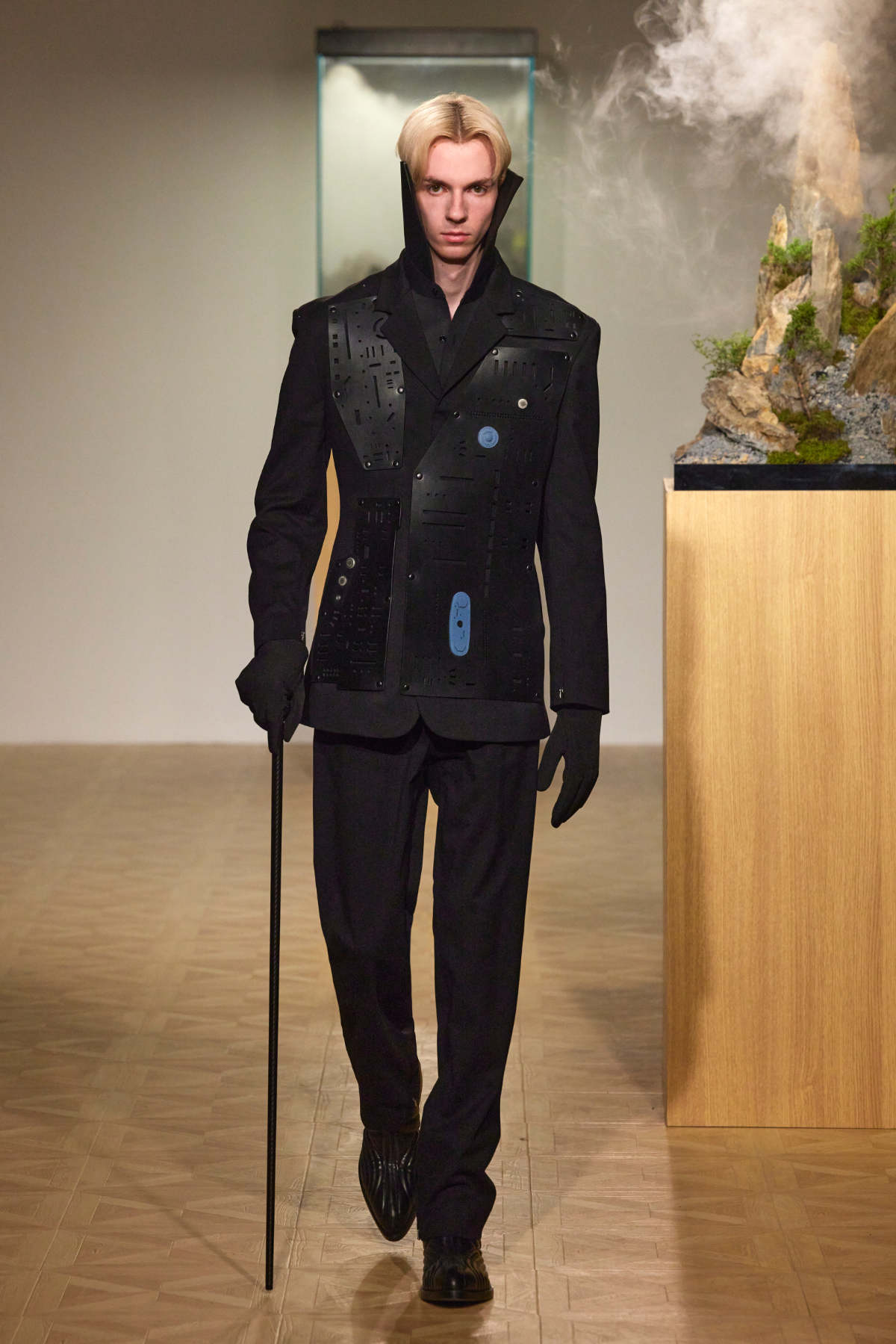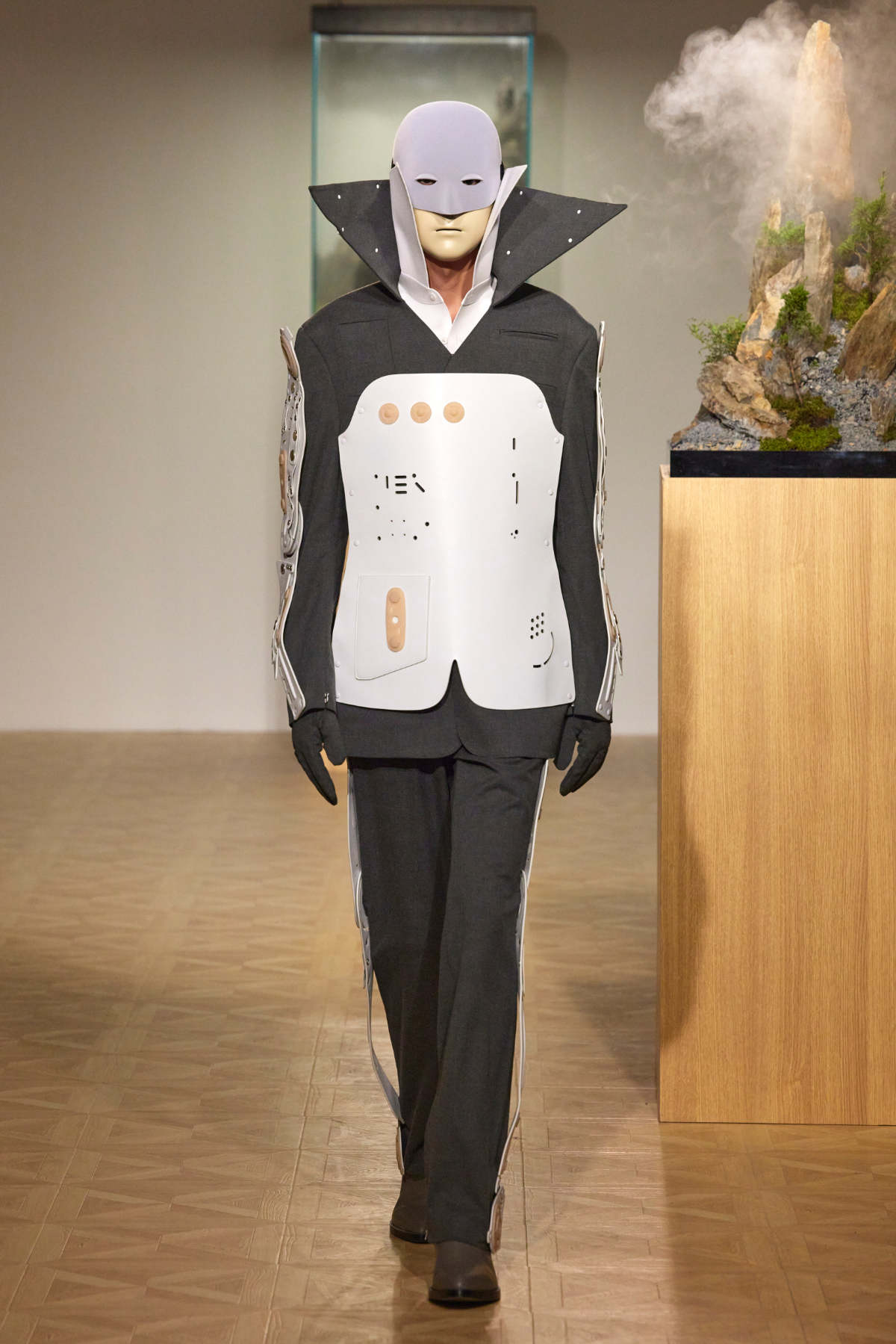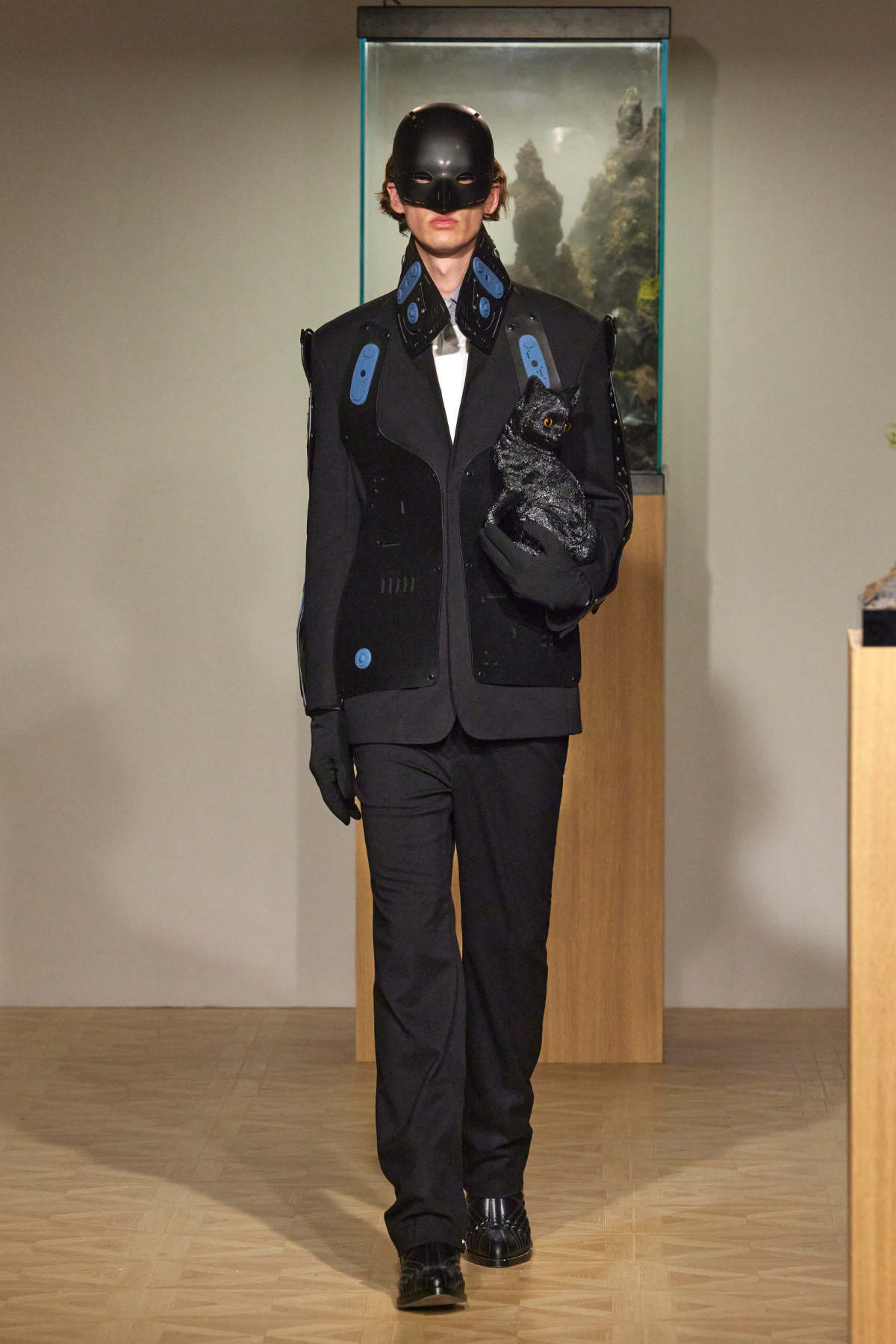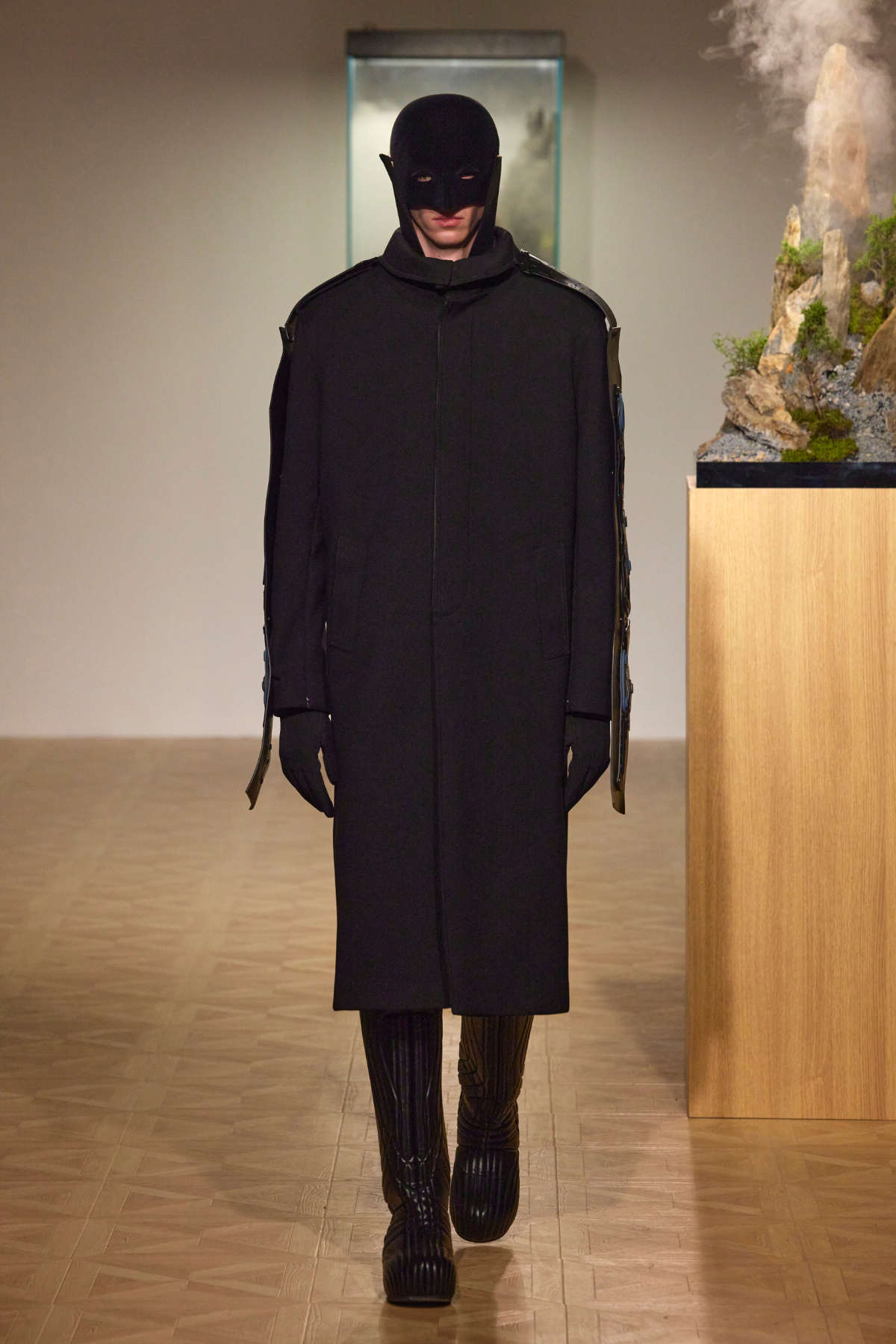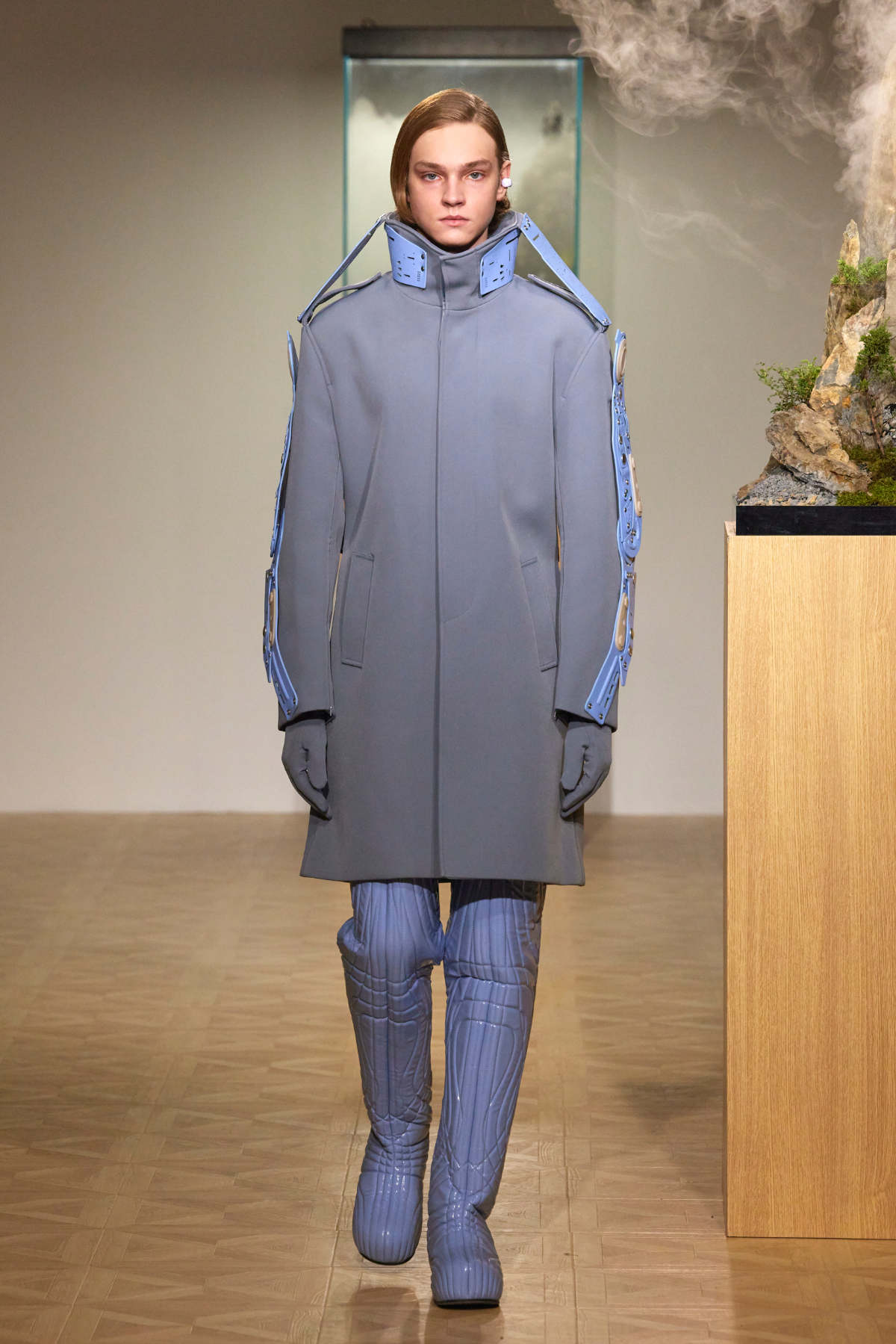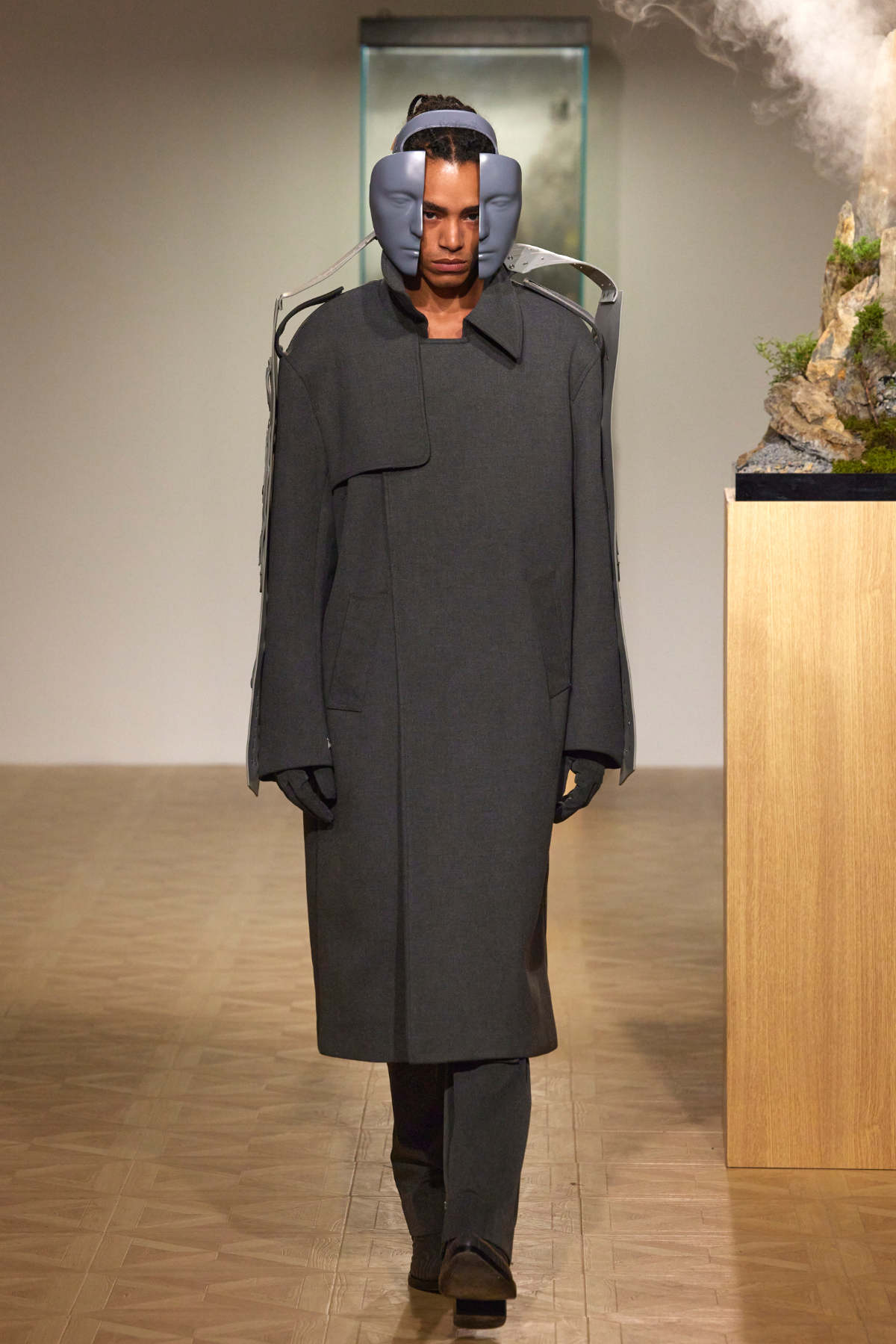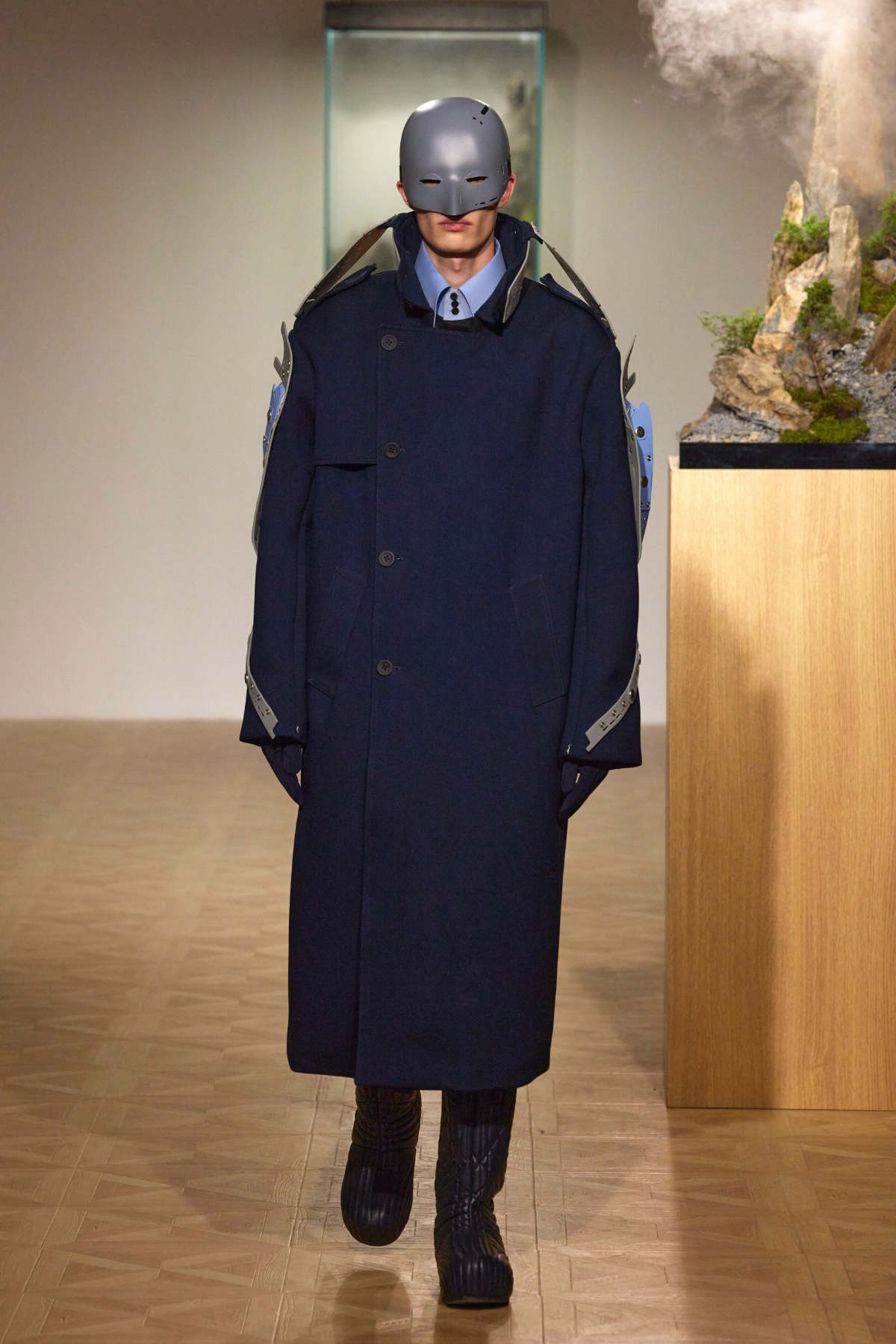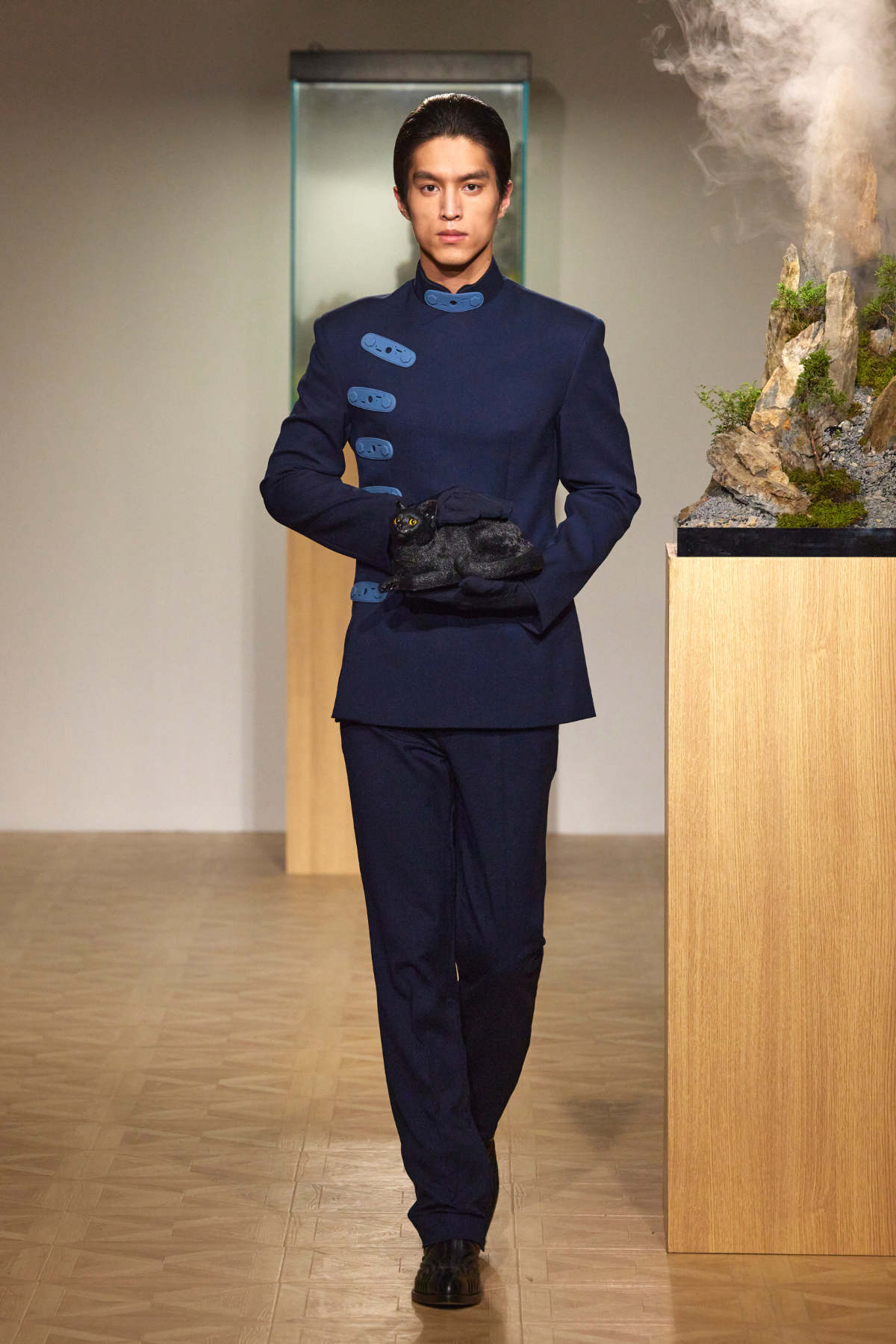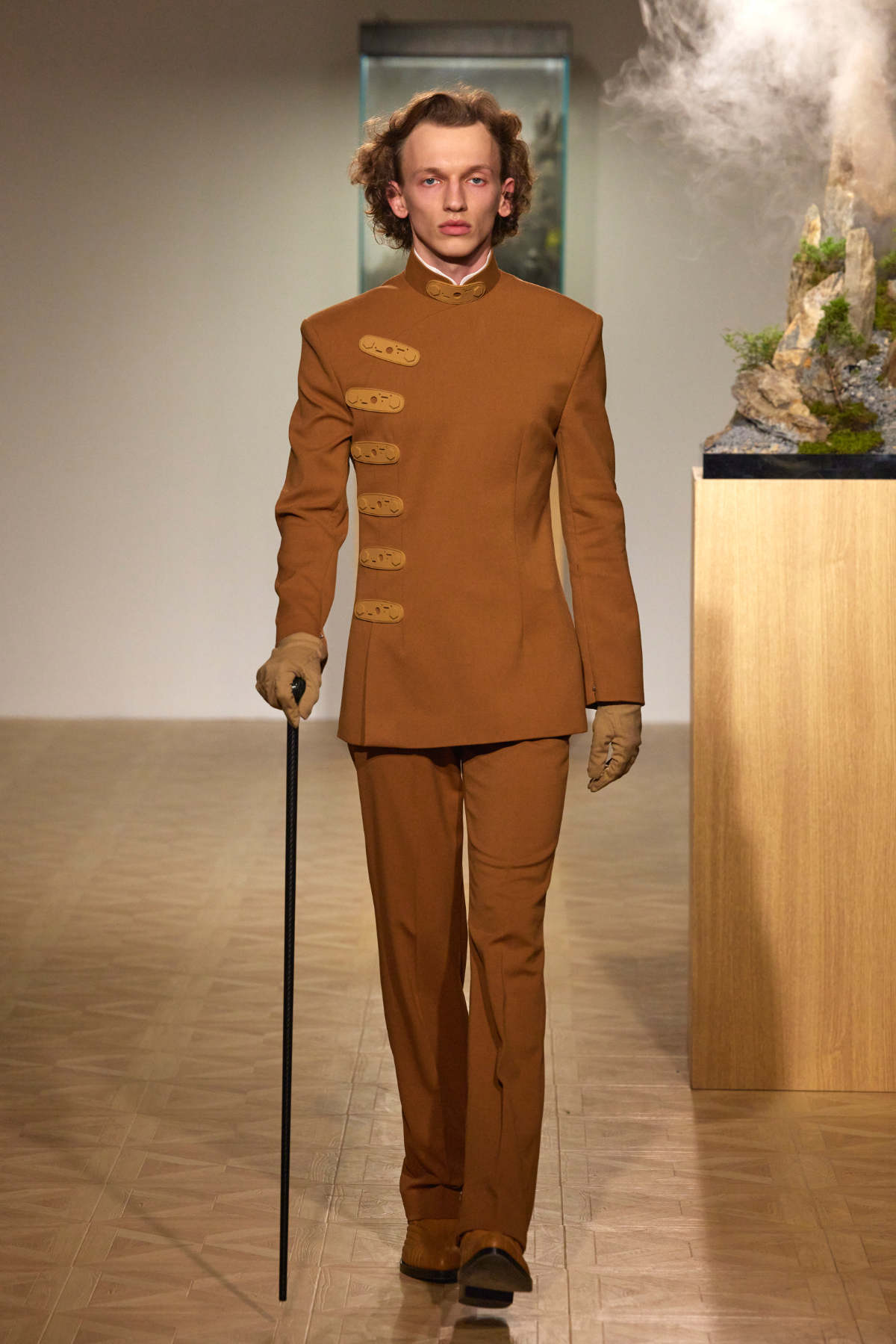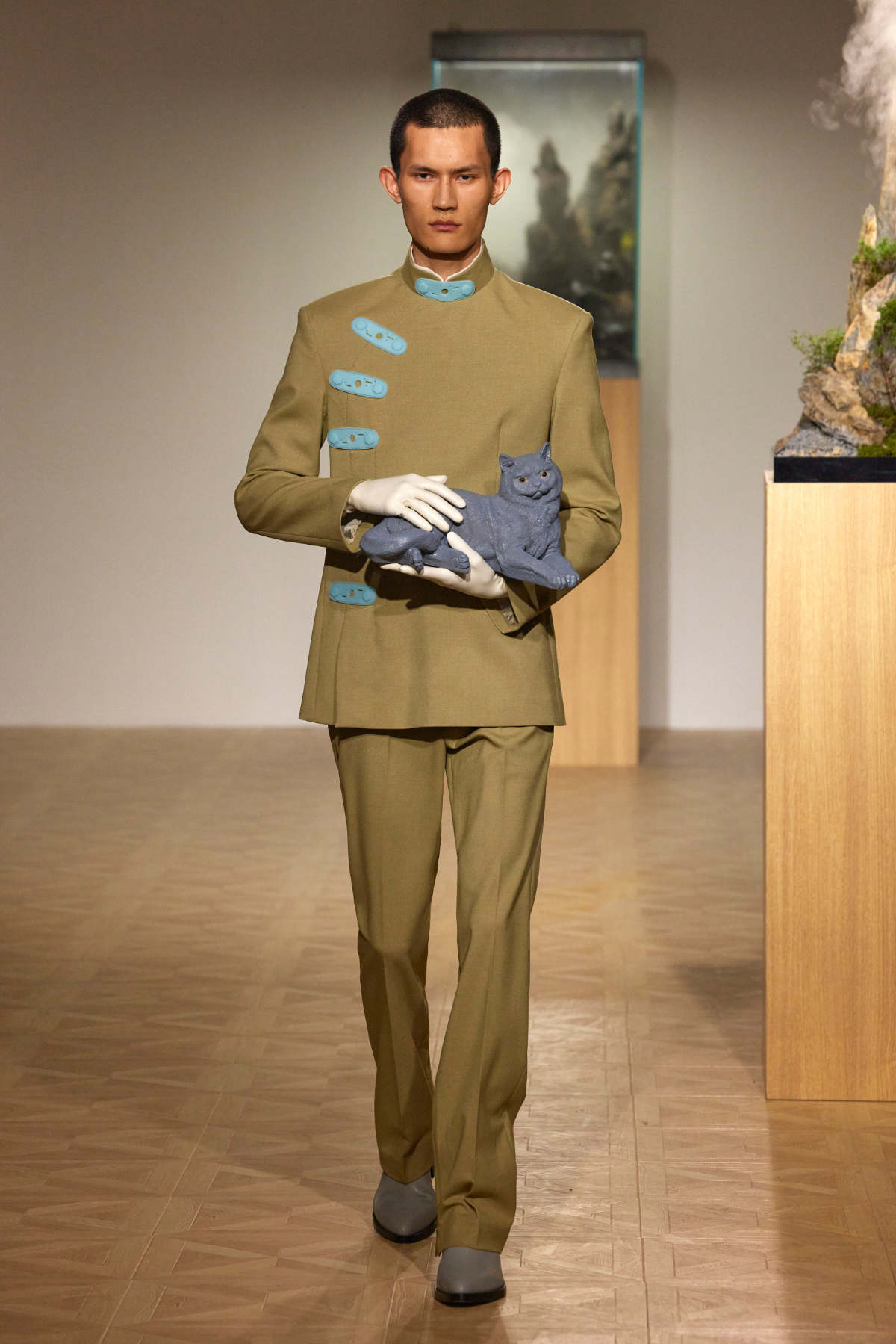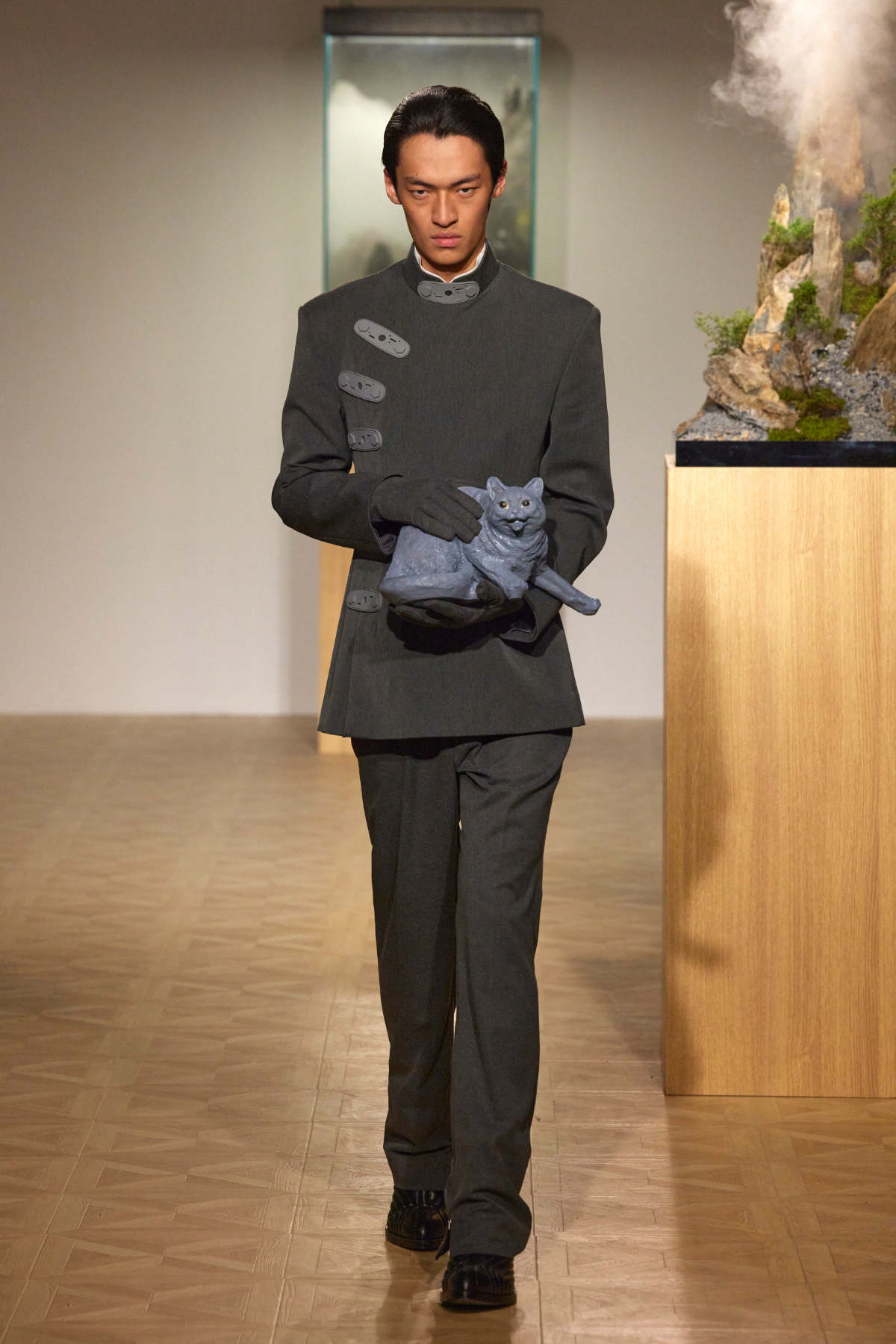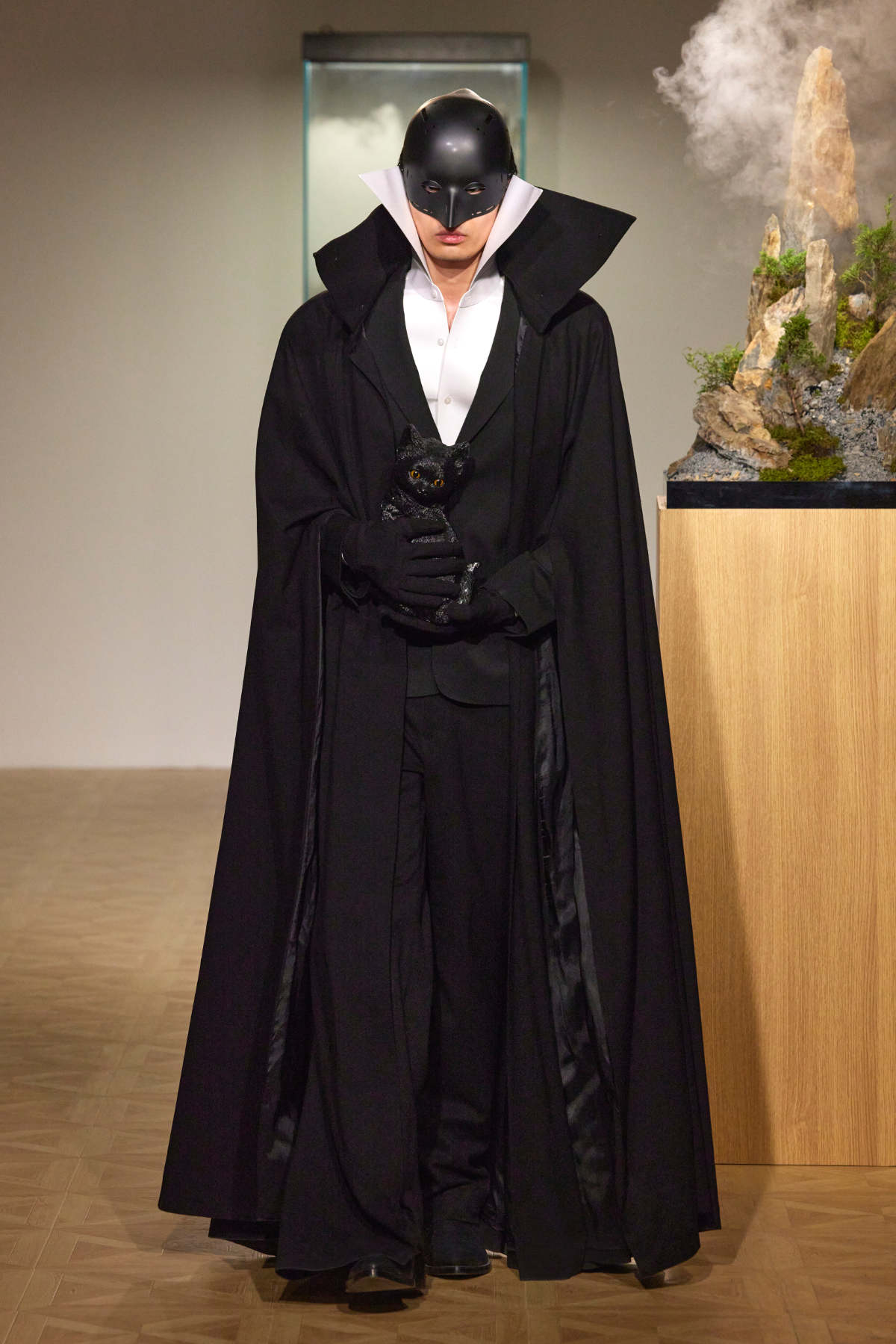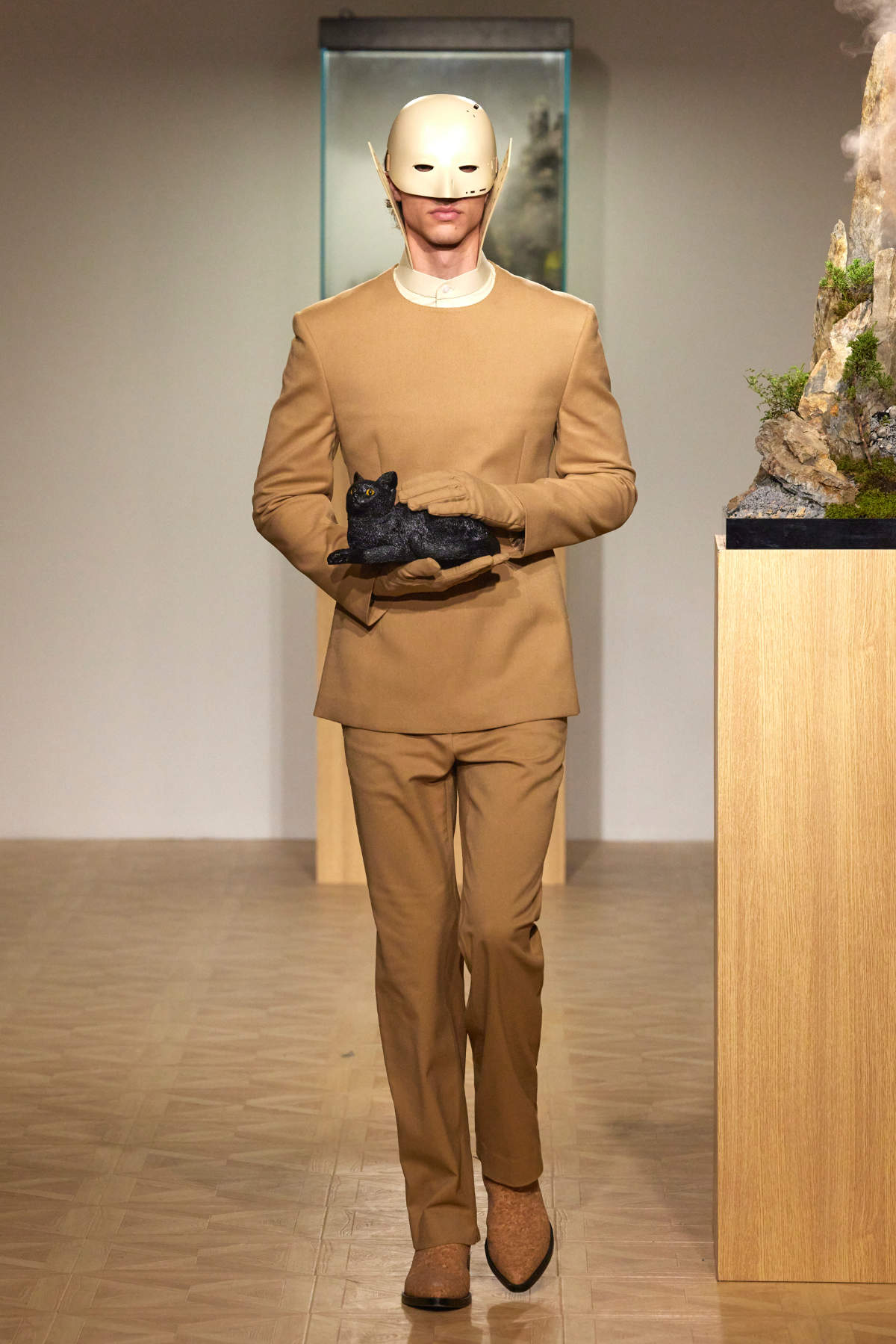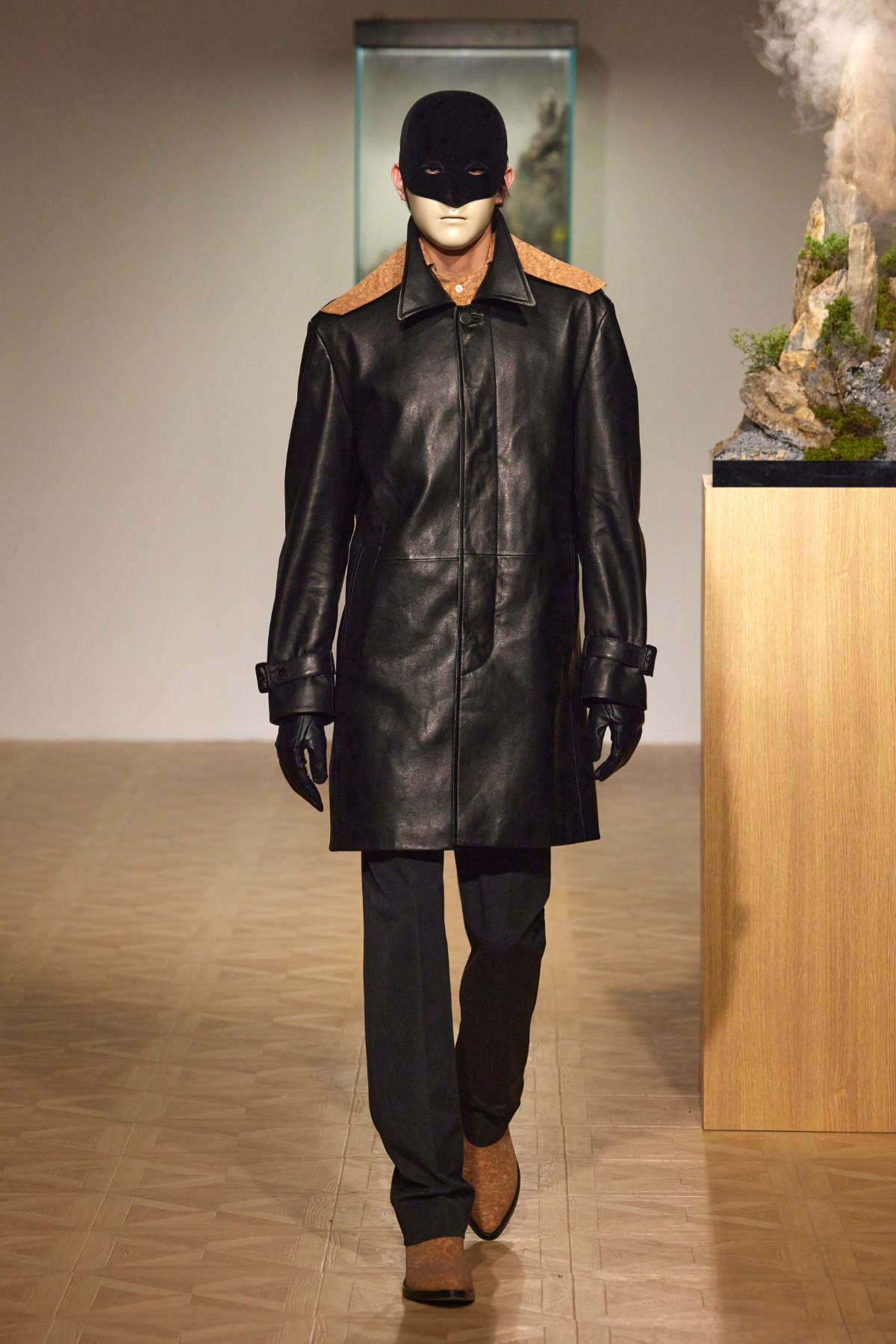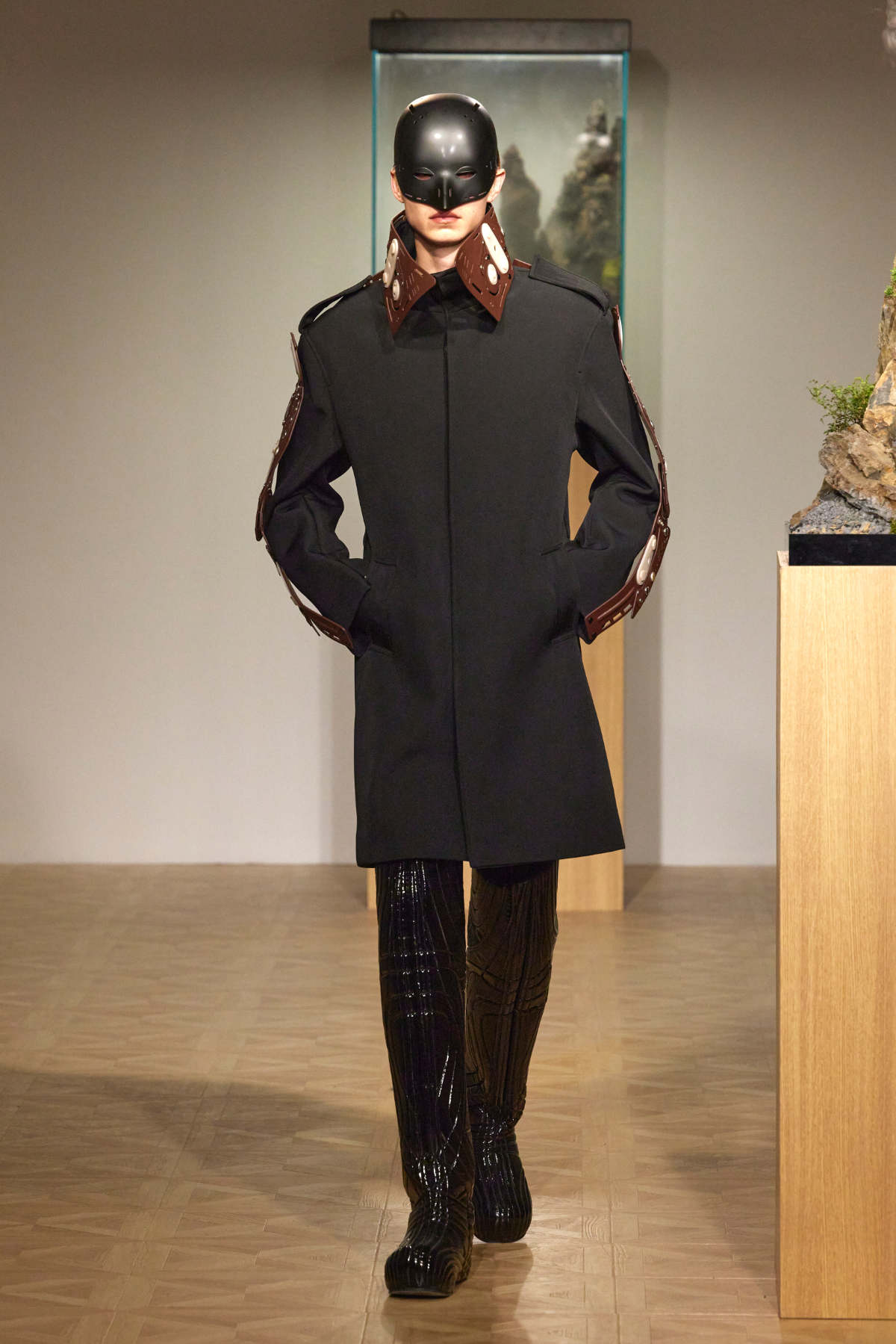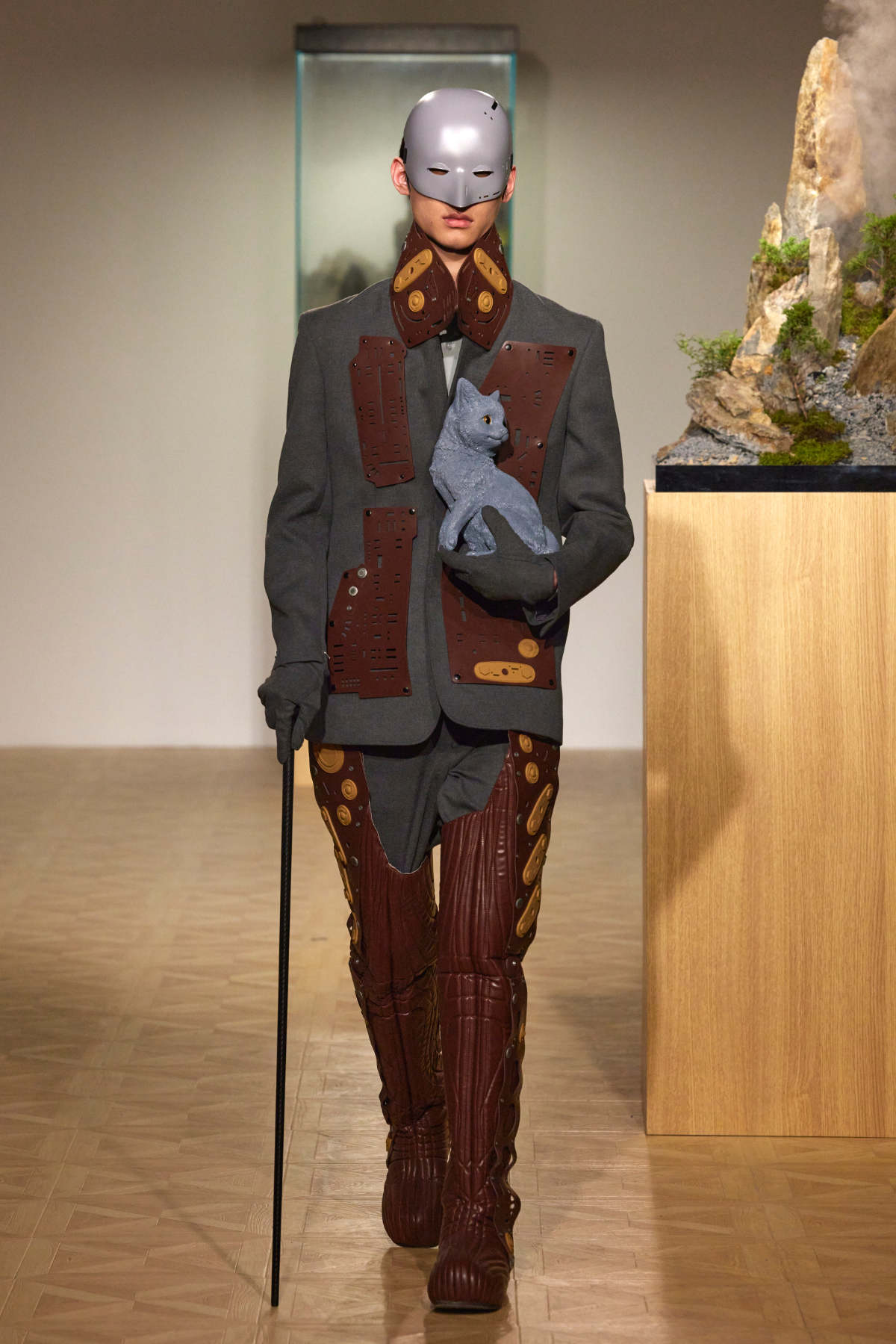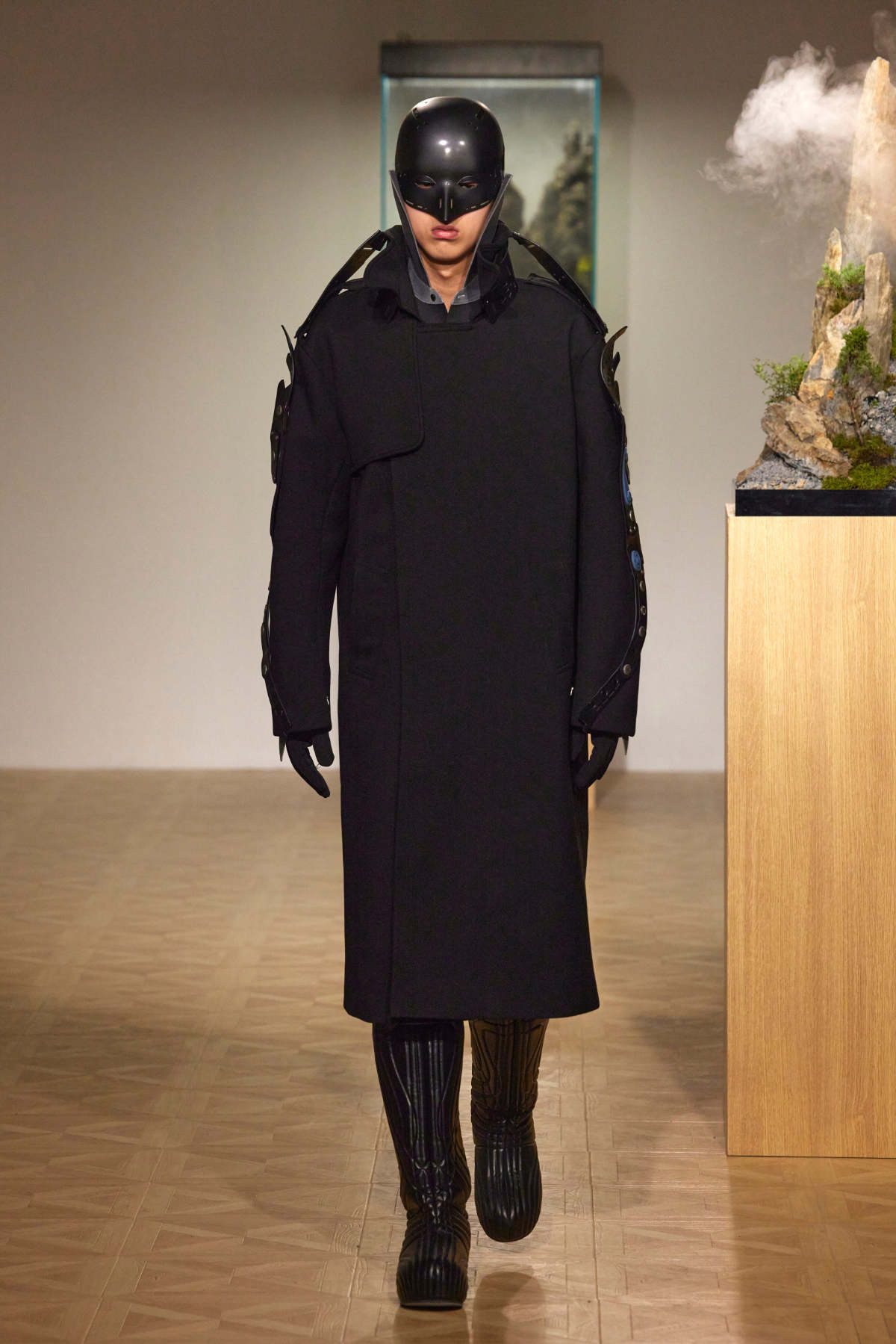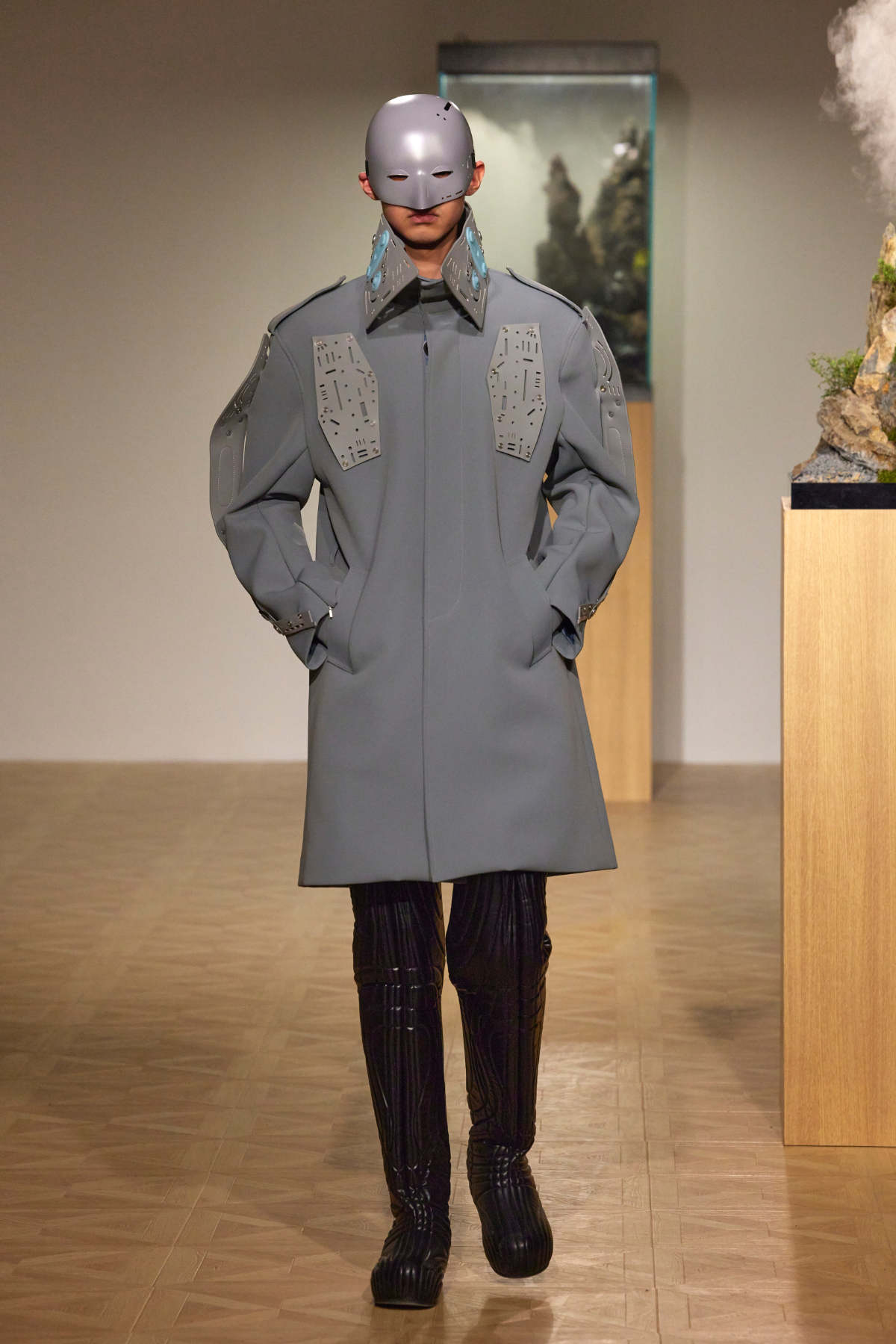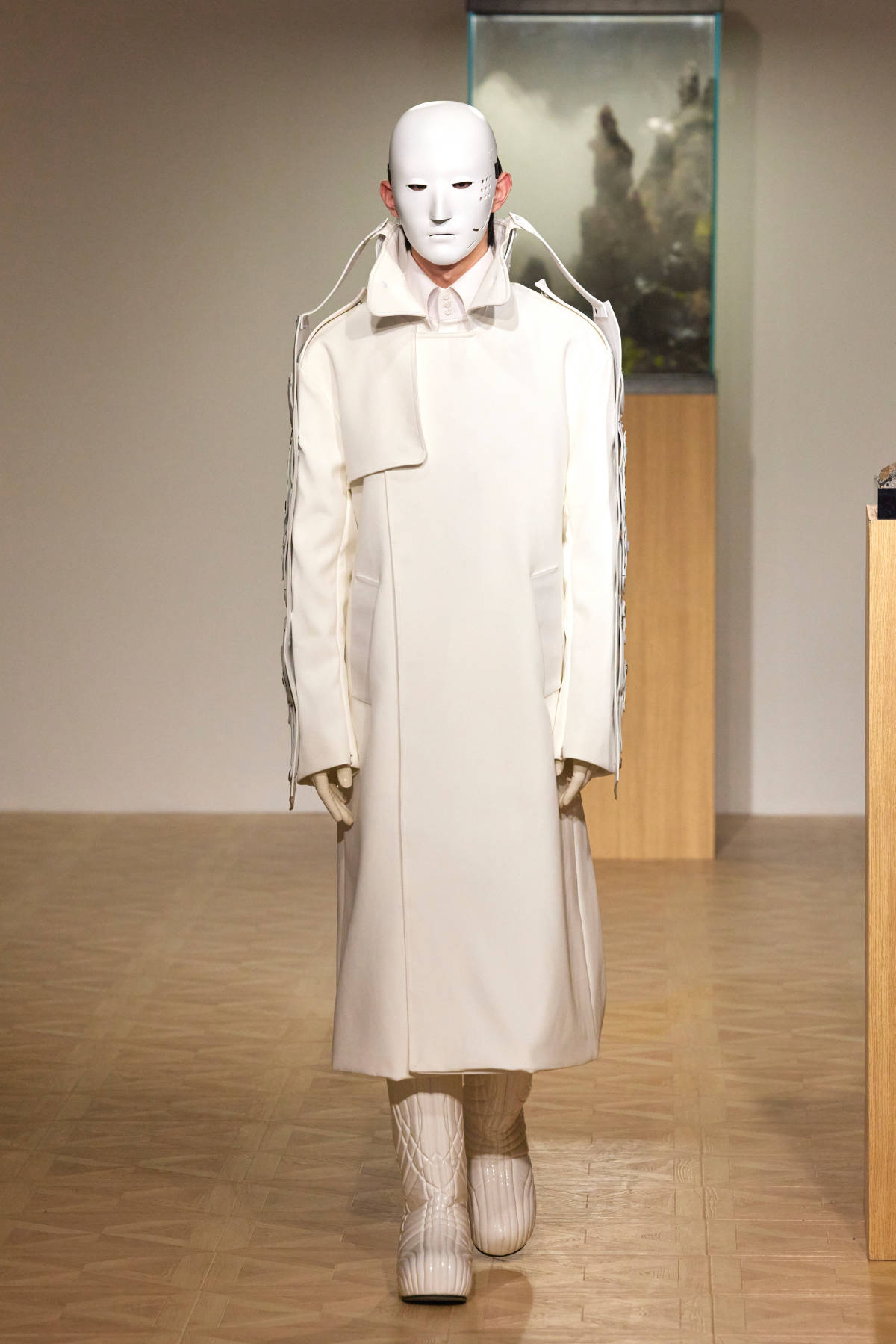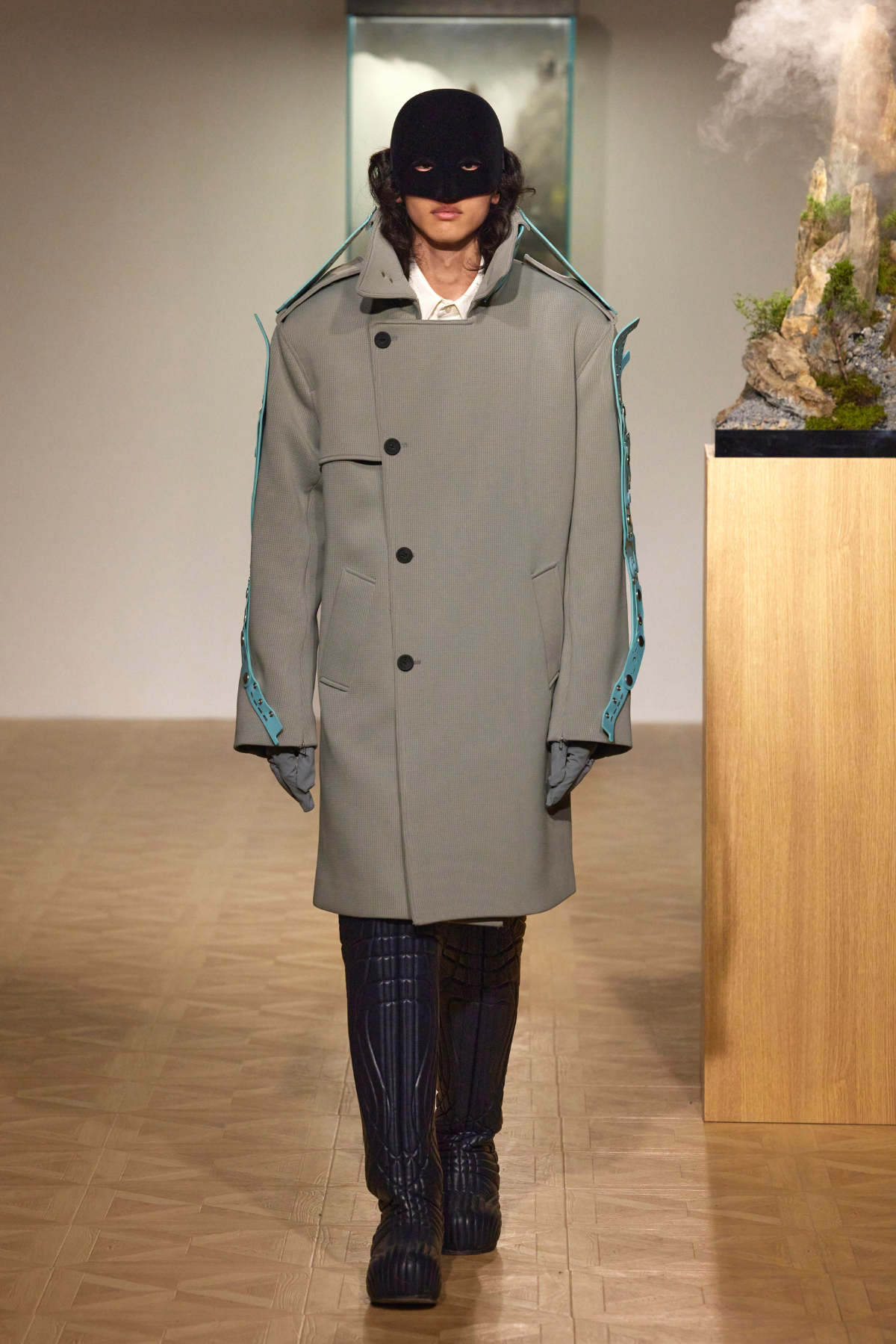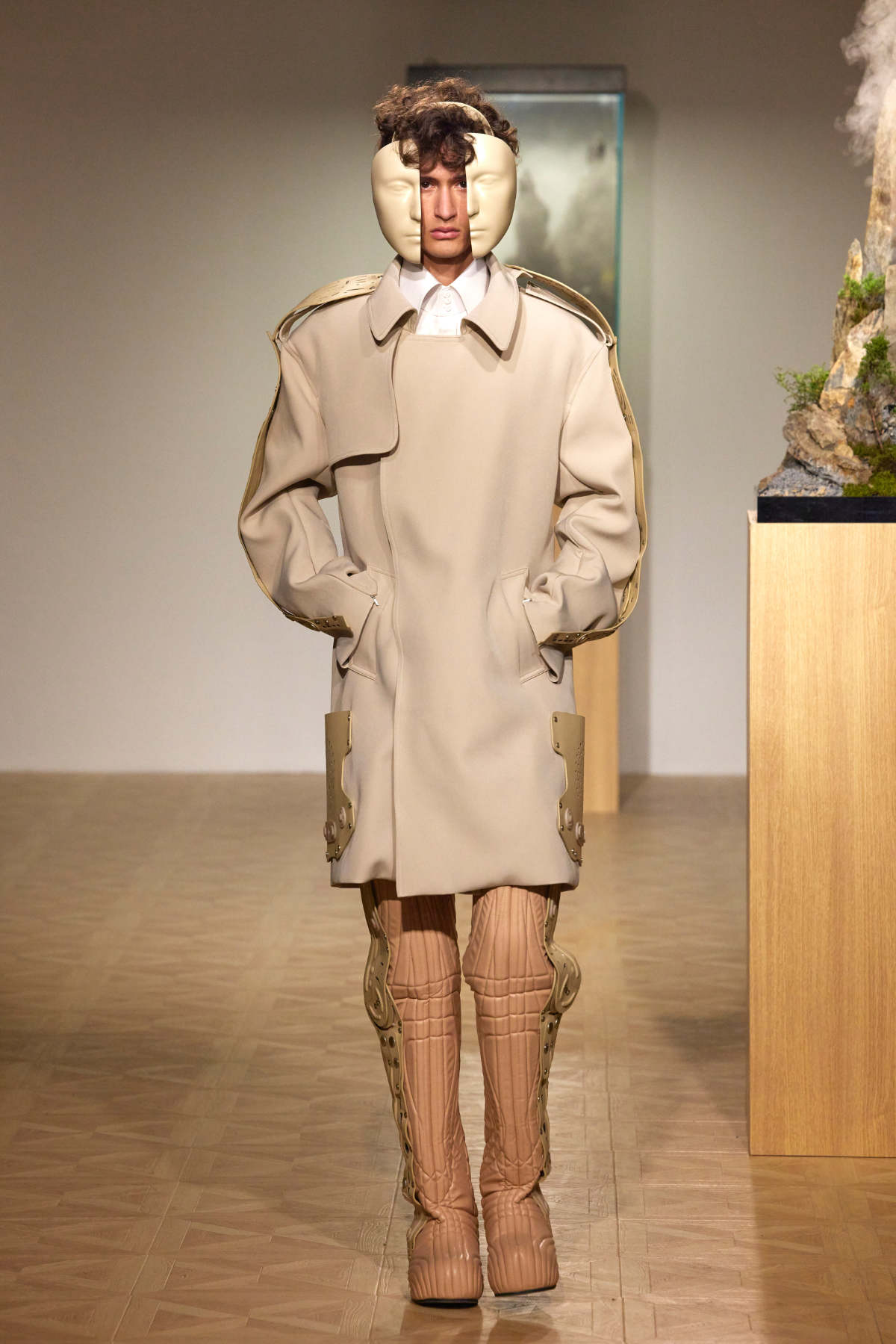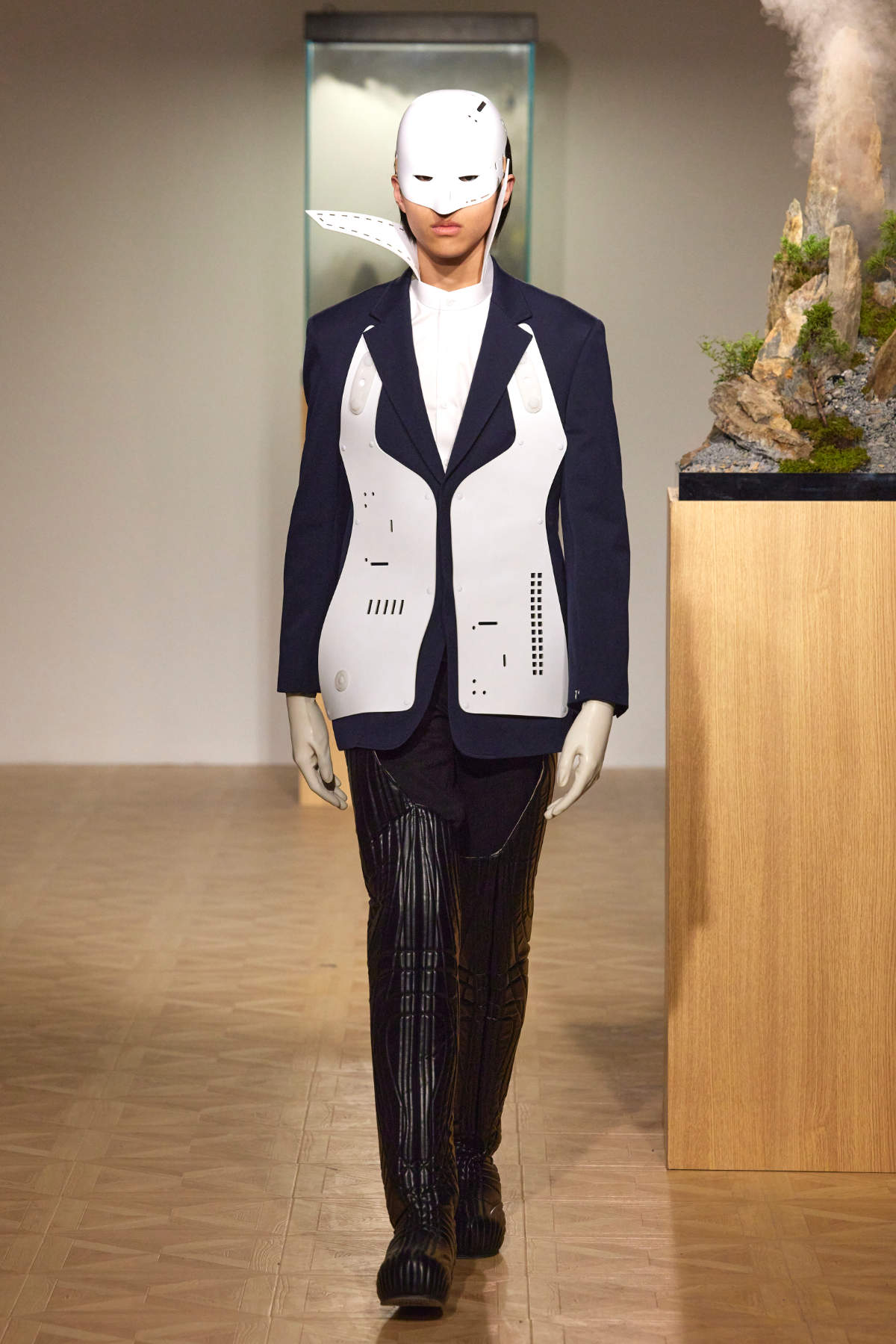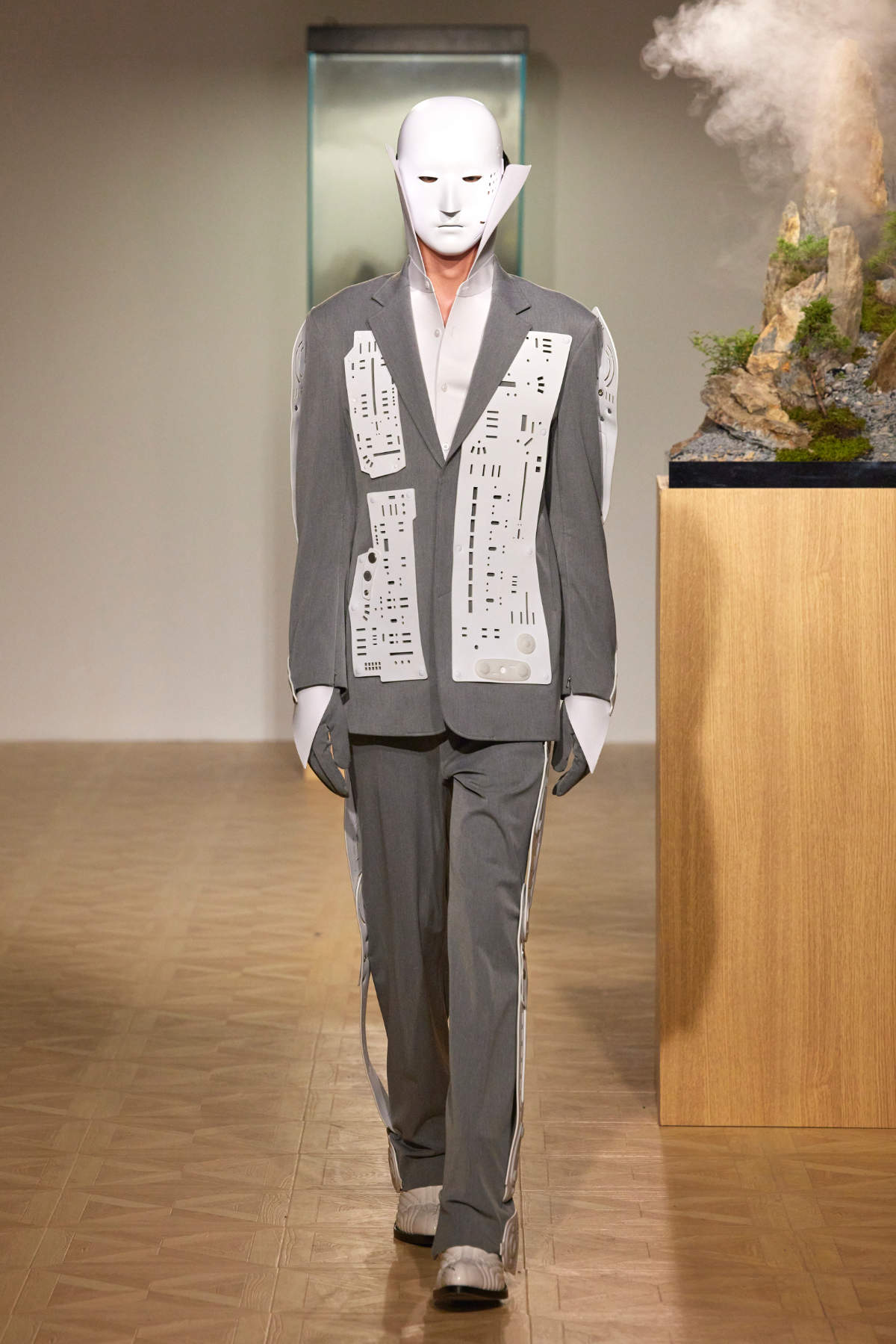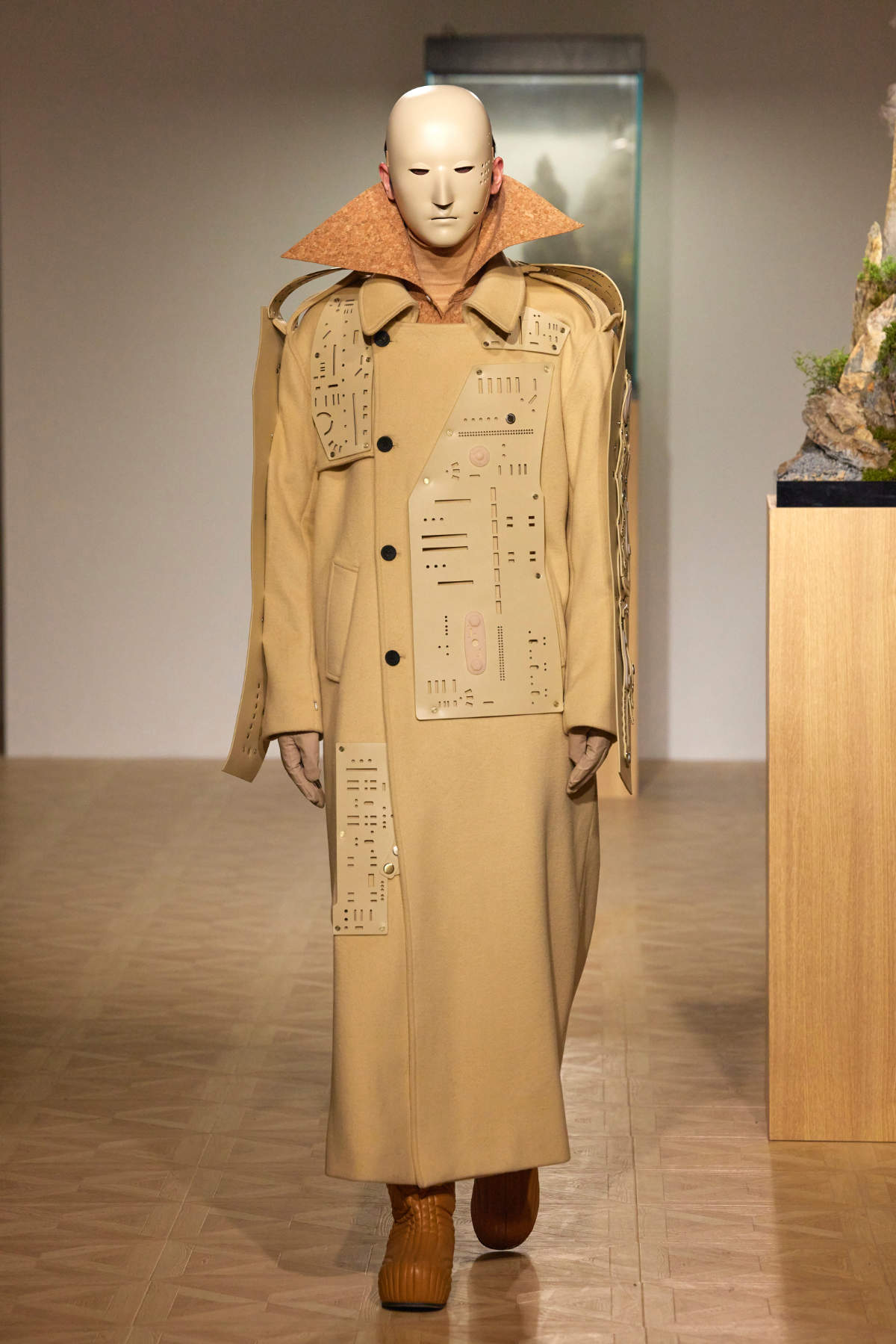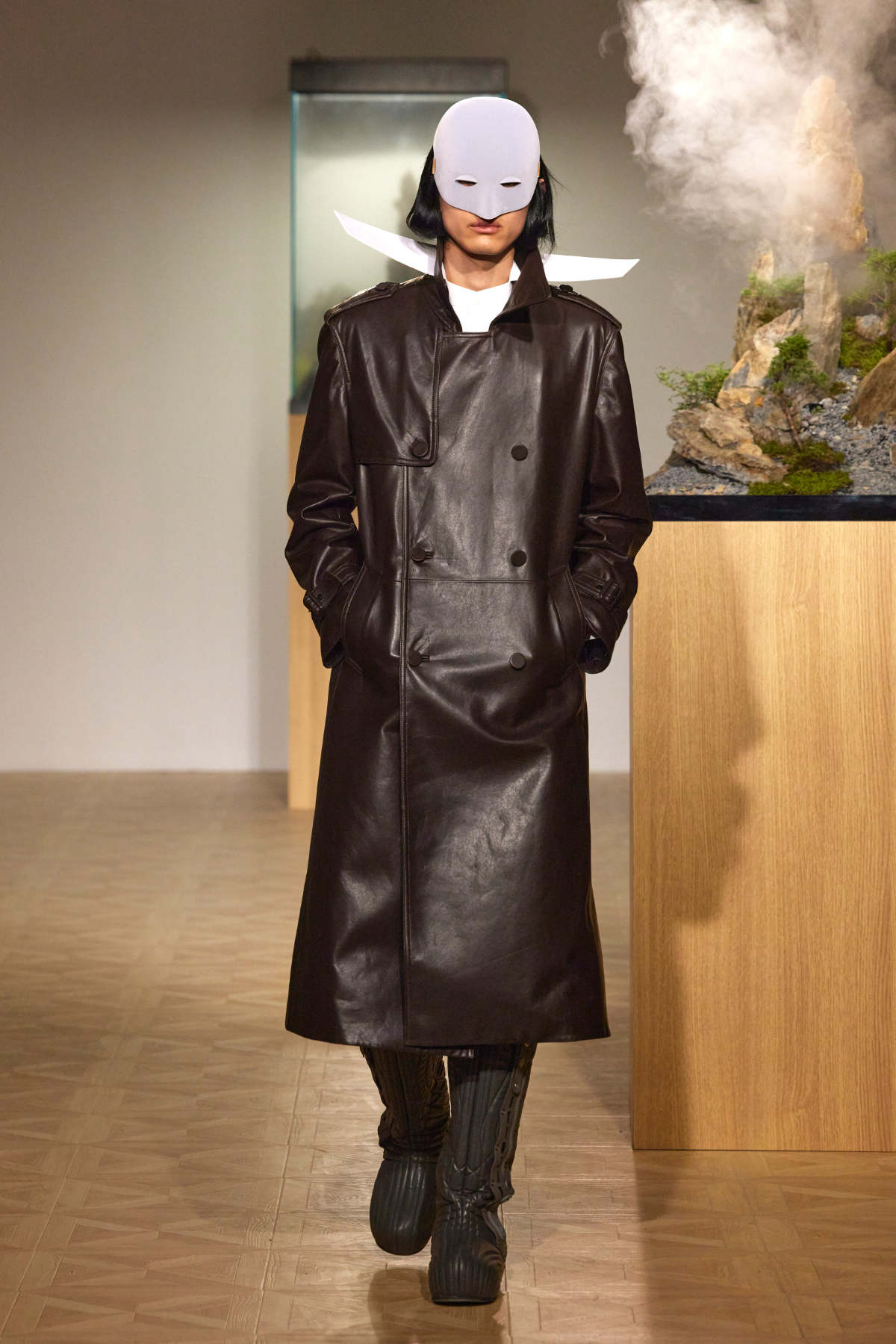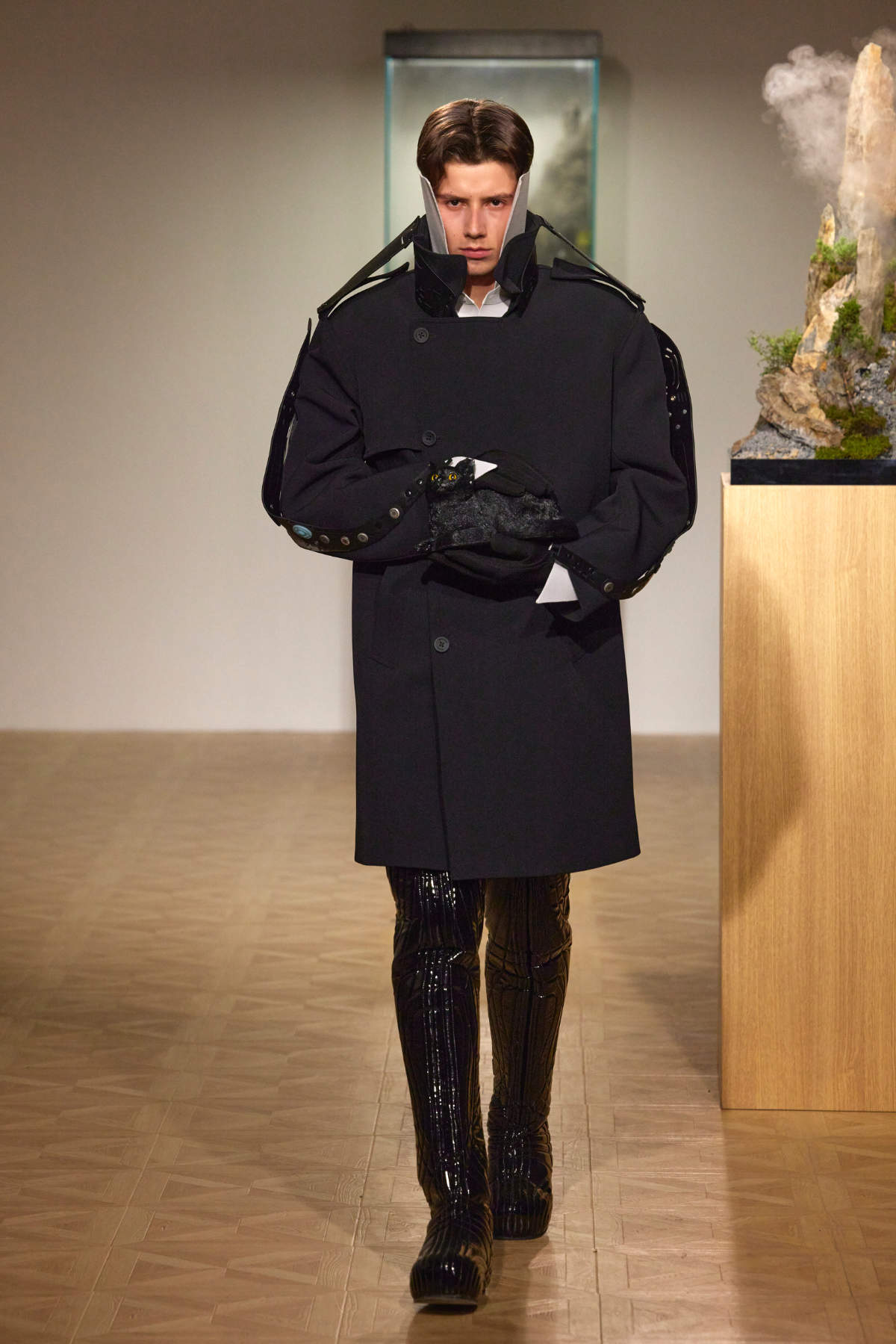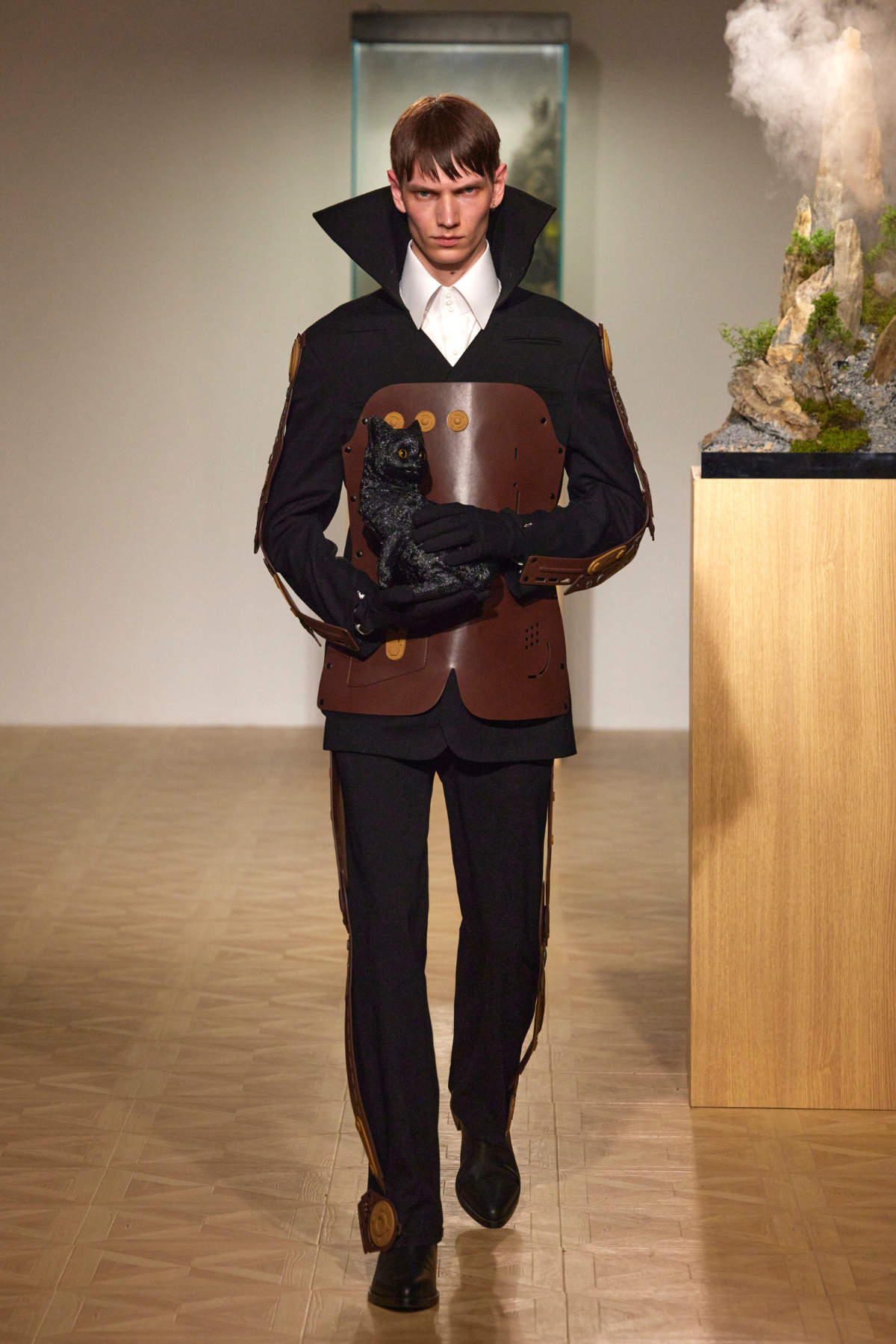Xander Zhou Pro Presents His New Autumn Winter 2024 Collection: Sciremony
Luxferity, 05.04.2024
CONCEPTUAL RESEARCH
Scientist
At that time, the practitioners of science were known primarily as "natural philosophers." Coleridge remarked acidly that the members of the association should no longer refer to them selves this way. Men digging in fossil pits, or performing experiments with electrical apparatus, hardly fit the definition. They were not, he meant, "armchair philosophers," pondering the mysteries of the universe, but practical men - with dirty hands, at that. As a "real metaphysician," he forbade them the use of this honorific.
The hall erupted in a tumultuous din, as the assembled group took offense at the insult Coleridge clearly intended. Then Whewell rose again, quieting the crowd. He courteously agreed with the "distinguished gentleman" that a satisfactory term with which to describe the members of the association was wanting. If "philosophers" is taken to be "too wide and lofty a term," then, Whewell suggested, "by analogy with artist, we may form scientist."
- Laura J. Snyder, The Philosophical Breakfast Club (2011)

On June 24, 1833, Samuel Taylor Coleridge, the doyen of English Romantic literature, poet, and philosopher, braving illness, traveled from Highgate to Cambridge. At the British Association for the Advancement of Science, he triggered a semantic debate. Responding to him in public was William Whewell, not only a scientist, theologian, and philosopher but also among the pioneers in the study of the history of science. This exchange between Coleridge and Whewell led to the inaugural use of the term "scientist" in the English language.
Still, some "natural philosophers," including John Dalton, Michael Faraday, and James Clerk Maxwell, did not endorse the term "scientist." They believed it overly emphasized the technical and utilitarian aspects of scientific practice, failing to represent their holistic pursuit of knowledge. But as science became increasingly specialized and professionalized, the use of "scientist" gradually gained wide spread acceptance and has persisted to this day.

Science
In English, the root of "science" derives from the Latin verb "scire," meaning "to know." Its early connotations encompassed "written knowledge," "systematized knowledge," "knowledge peculiar to a group," and "skills or crafts acquired through training." However, following the Enlightenment and the First Industrial Revolution, "science" came to specifically refer to natural and physical sciences by the mid-19th century, marking its departure from the general domain of knowledge to become a discipline in its own right.
In Chinese, Ming and Qing scholars once offered an interesting translation for modern science - (ge zhi xue). While this term may seem unfamiliar today, the idea of (ge wu zhi zht) from the Book of Rites has evolved over time. It has been interpreted as a proposal to exhaustively investi gate the principles of things to synthesize rational knowledge, and also as a call for practical research and philosophizing, highlighting the symbiosis of action and knowledge.
According to Shuowen Jiezi, the original meaning of (ge) is (mu zhang mao), which is "the appearance of a tree's growth." The dictionary clarifies that unlike (zhang mu), which high lights the beauty of the tree, (mu zhang) celebrates the beauty within the process of growth. "The process of growth," it continues, "always reaches a certain culmination," much like the tree of knowledge unfurling its branches far and wide.

Ceremony
Tracing its etymology from "caerimonia" in Latin, to "ceremonie" in Old French, and eventually "cery monye" in Middle English, the term "ceremony" has retained its original essence throughout history. It denotes "a religious observance" or "a solemn rite," evoking a sense of sacredness and awe.
The Chinese counterpart to "ceremony" is (li), a foundational concept in Confucianism, which extends beyond ritual or etiquette to embody a comprehensive ethical framework. It represents the proper way of conducting oneself, and encapsu lates rituals that connect humans with the cosmos.

Sciremony
A combination of "science" and "ceremony" forms the theme of the XANDER ZHOU PRO AW24 collection, "Sciremony."
To modern eyes, the pair might first appear to be opposing forces - while science advocates rational thought, progressiveness, and materialism, cere mony abides by beliefs, traditions, and idealism.
But in human history, the duo is often embedded in and enriched by one another, as with astrology and astronomy, alchemy and chemistry, as well as healing ritual and medicine.
In (ke mu sht), the title for this season in Chinese, (ke; science) and it (shi; ceremony) are bridged by (mu), which signifies "curtain" as a noun, and "to cover" as a verb. It heralds a grand ceremony veiled in sci-fi, poised to unveil its spectacle.
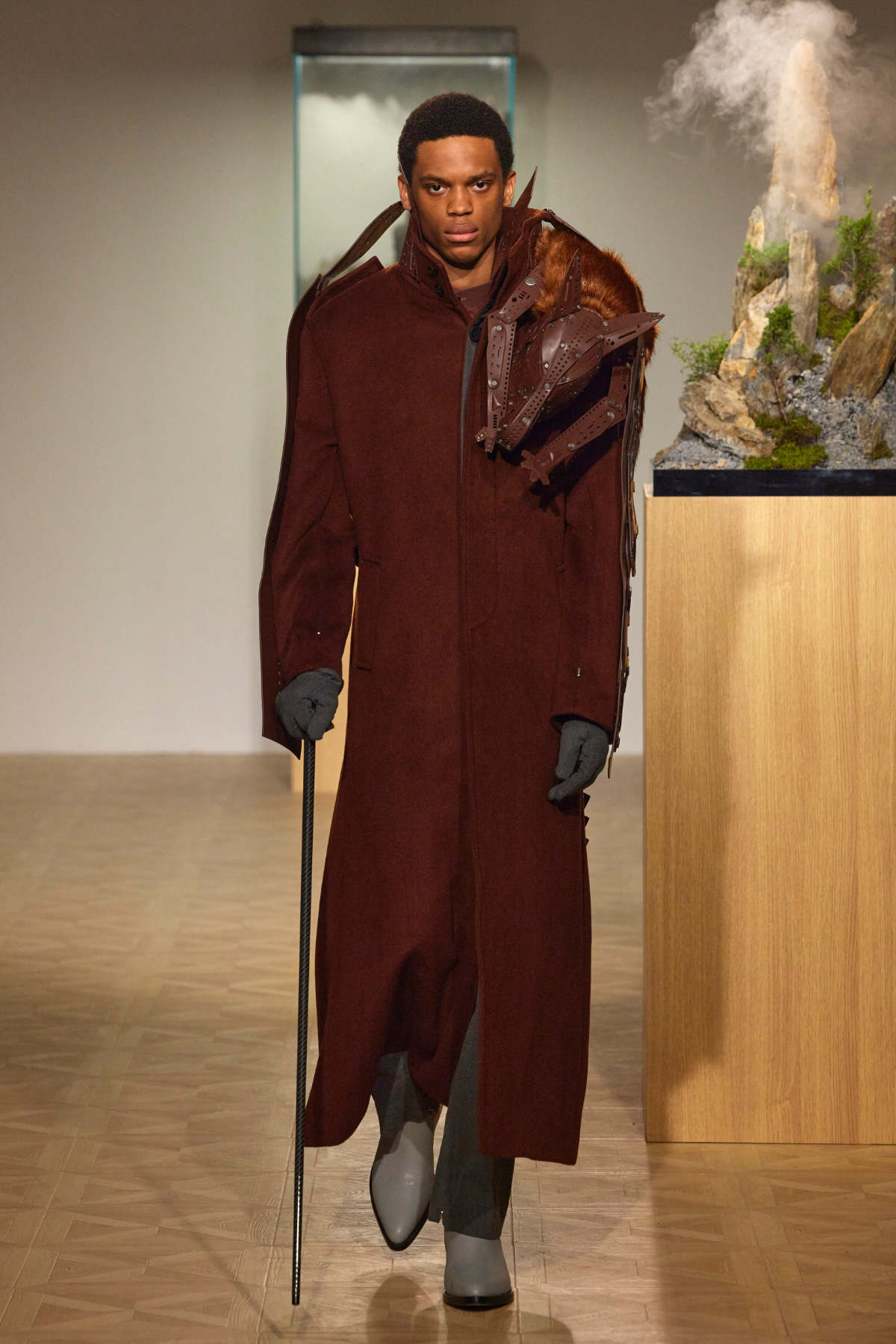
DESIGN HIGHLIGHTS
Land of Illusion
Within a runway space partitioned by classical scrolls, models emerge from the painted world into reality, like divine dragons animated by the brush of Zhang Sengyou. Space meteorites transform into artificial landscapes of a Chinese garden, with incense burning atop, swirling in smoke and mist.
XANDER ZHOU PRO AW24 unfolds gracefully in the Land of Illusion.
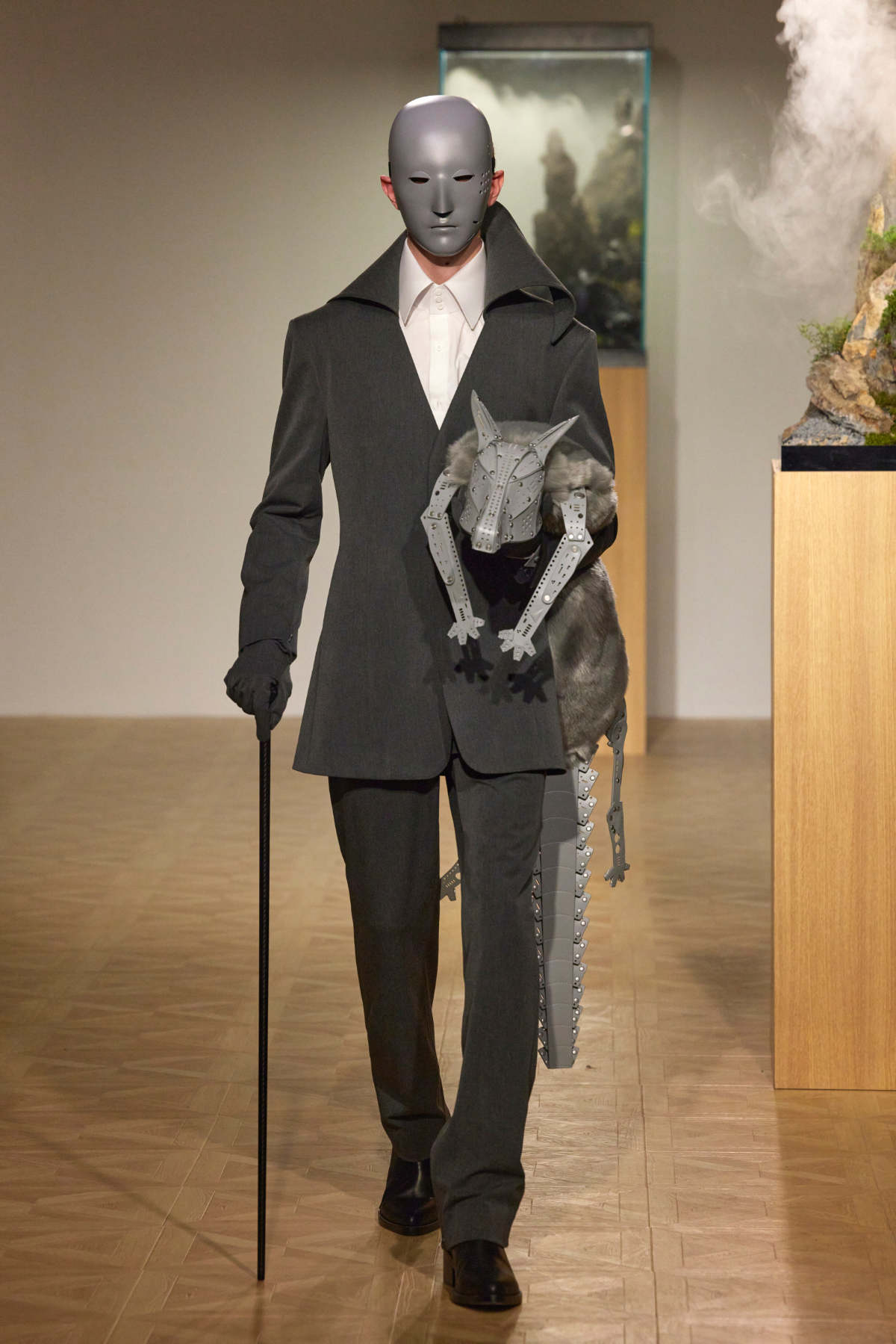
Futurist Formal
Futurist Formal, a style quintessential to XANDER ZHOU PRO AW24, infuses the refined elegance of suits, tuxedos, and men's formal attire with a sci-fi twist. These ensembles radiate a timeless gravitas that is as forward-looking as it is rooted in tradition, ideal for galas of the future.
Transmodern Romanticism
Expect geometric face shields and theatrical masks reimagined through a transmodern lens. Draculaes que collars that rise above the wearer's head are to be revived as symbols of formality and mystique.
Transmodern Romanticism is the modus operandi at XANDER ZHOU PRO.

Hybridization
Distinguished from the brand's ready-to-wear collection, XANDER ZHOU PRO is conceived from experimental research and creative caprice, formu lating cross-media creation through couture pieces.
Today, "science" encompasses both our compre hensive understanding of the world and the meth odologies employed to expand this knowledge - or "savoir-faire" in fashion vernacular. In the context of fashion, this expression typically refers to "artisanal craftsmanship," yet its components, with the former meaning "to know" and the latter "to do," reflect the idea of "unity of knowledge and action" found in Chinese traditional philosophy.
While we ineluctably borrow the parlance of French couture, XANDER ZHOU PRO intends to introduce an alternative value system, wherein the meticulous craftsmanship of beadings and embroideries gives way to systematic research and interdisciplinary practice.
